#鴻翔
Photo
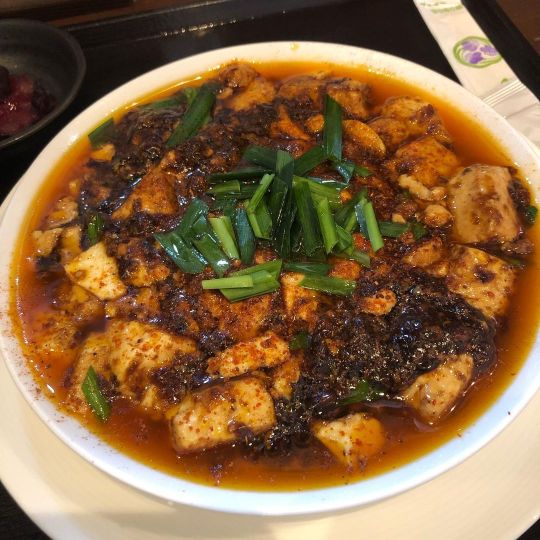
#鴻翔 さん。 四川麻婆豆腐セット。 (鴻翔) https://www.instagram.com/p/Cf46oSxvL9Q/?igshid=NGJjMDIxMWI=
0 notes
Text
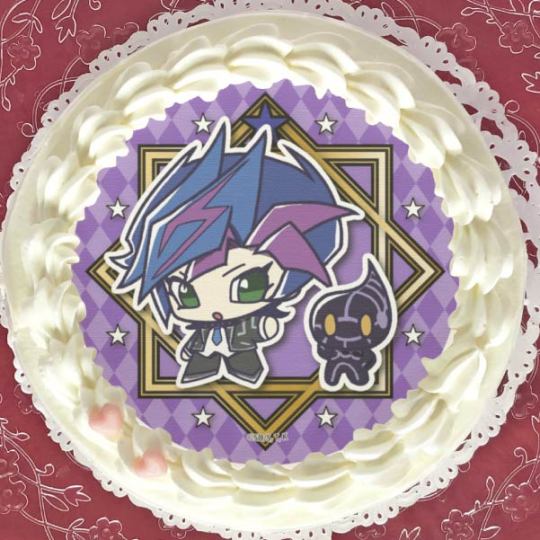



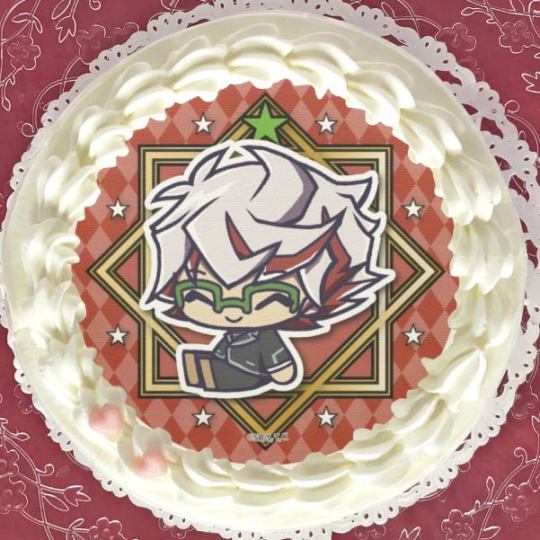
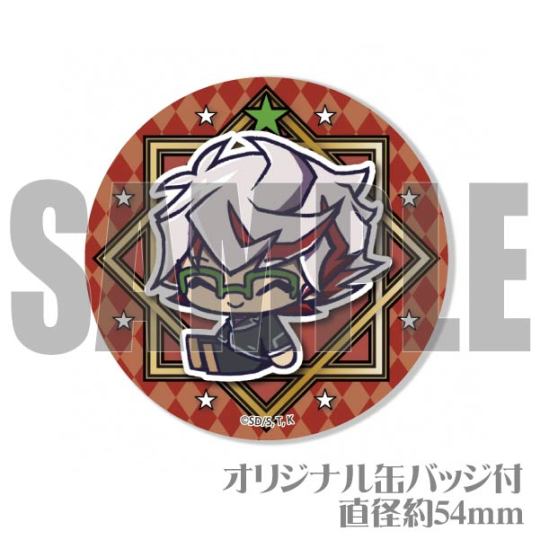










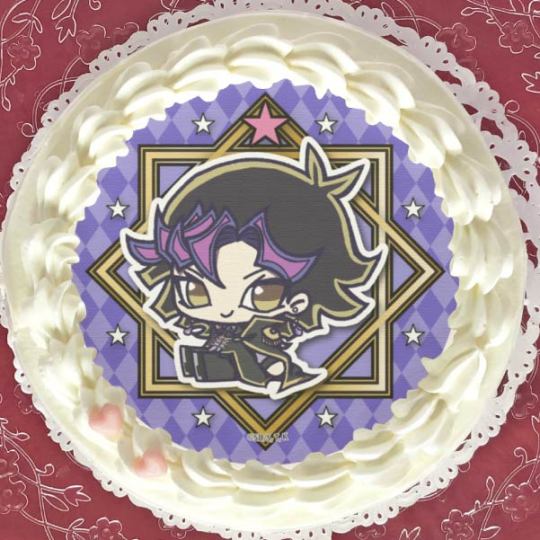





【公式】第3弾 ケーキ・マカロン・カップケーキ【PRIROLL(プリロール)】| 予約限定商品,遊☆戯☆王シリーズ,定番柄,第3弾
12 notes
·
View notes
Photo
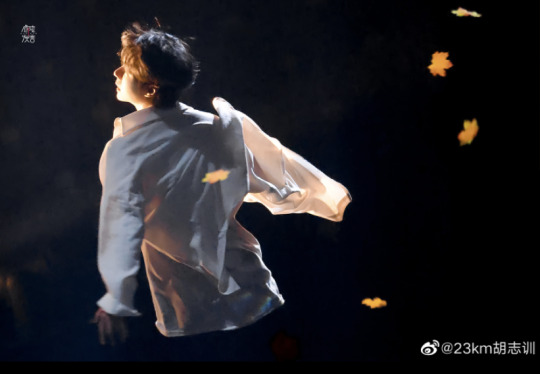
孤鴻號外野,翔鳥鳴北林。
徘徊將何見?憂思獨傷心。
— 魏晋·阮籍 《咏怀八十二首·其一》
The lone swan goose wails in the wilderness,
The flying birds call in the northern forests.
What’s there to see in the lingering?
Worried thoughts and a solitary, wounded heart.
— Ruan Ji (210-263 AD) “82 Songs of Dispositions, No. 1”
孤雁不飲啄,飛鳴聲念羣。
誰憐一片影,相失萬重雲?
— 唐·杜甫 《孤雁》
The lone swan goose doesn’t drink or eat,
Flying, wailing its longing for its flock.
Who would pity that piece of shadow,
Lost in the million layers of clouds?
— Du Fu (712-770AD) “The Lone Swan Goose”
Happy New Year everyone! 🎉🧧
Below the cut, I’m offering my interpretation of Like the Sunlight, based on the lyrics and Dd’s performance on NYE. Unlike other interpretations I’ve worked on, I’m keeping this one free from the influence of what I’ve found on the Chinese internet, whether they are interpretations from fellow fans, explanations from those involved in the production, or reviews by the media—for reasons I shall explain afterwards.
This is strictly the product of my brain, my senses, based on the words, the stage art, the choreography.
As a warning of sorts, my interpretation isn’t one of positivity, or even, one of blissful happiness. It also isn’t candy-ish. However, I do believe this song, this performance is deeply personal for Dd, revealing, sharing a facet of him that with his fame, he can no longer say in words. And in doing so with music and movements, and on one of China’s biggest stages no less, he’s letting us see that side of him, and fulfilling what he sang in Nian:
為溫暖 也為尋常的人間 Stand up.
For warmth, and for the ordinary humankind, stand up.
(Under the cut: Yes, this meta is also very, very long. :) )
For reference, I’m using the English lyrics translation by Xiaoman, and the official performance video posted by SMG. I'll denote the time of the lyrics (Xiaoman) video by the notation “LV 1:00″ for the 1st minute mark, and PV 1:00 for the same time mark in the performance (SMG) video. Sorry this is a little clumsy! I haven’t thought of a better way to do this.
To start, perhaps we can start with the simplest questions? As with any story, we’d like to figure out the time, the place, and the characters.
Time is the easiest—it’s provided in the first line of the lyrics (LV 0:20). There’s a slight mistranslation in the video; the line actually specifies two solar terms in the Chinese calendar—清明 Qingming, which falls on the 4th or 5th of April, and the one immediately after, 谷雨 Guyu, which falls on the 20th or 21st of the same month. Hence, this line of lyrics is better translated as: The Qingming winds are blowing, waiting for Guyu to sow the seeds. The time of when the conversation in the lyrics happens can therefore be estimated as around mid-April.
Is there a significance to this? Yes. The Chinese calendar divides the seasons differently from the Gregorian calendar, and Guyu is the last solar term associated with Spring. Spring is well on its way at the time of the song. It’s almost over.
Next, the place. This one is quite simple as well. It’s the wilderness, with wide open air where the the starry skies can be seen, with forests and its many trees, with mountains where beasts can roam.
The characters. This one a little trickier ... far trickier. The lyrics never specified who they are—in fact, the narrator doesn’t even know the name of who he’s talking to.
Who is the narrator, by the way? There are three pronouns in the lyrics — “I” (我), “You” (你), and “It” (它). Can we identify them?
Let’s start with the “It”, because the syntax actually makes it quite clear what “It” is — it’s the Lonely Nights. While Lonely Nights is plural in English, it’s introduced more as a character in the lyrics. Hence, the use of “it” rather than “they”.
And what does this “It” do? How does it interact with the other two characters, “I”, the narrator, and “You”? The lyrics says, Lonely Nights drifts away like fallen leaves of Autumn, and renews itself, like new leaves budding in Spring, on the tree branches (LV 1:17). It has a cycle then, a routine—usual as, the narrator says, the world will go on (LV 1:29). The time of renewal, he says, decides when and the narrator, the “I”, and the unnamed “You”, will meet.
This means the narrator is familiar, comfortable with Lonely Nights. He’s someone who has accepted Lonely Nights as part of life, as the way things are, as like the seasons, which may appear to come and go but don’t really, truly leave.
Nights, of course, share the same cyclic character as the seasons. They leave at dawn, return in the evening. But the narrator is specific about the kind of nights he is referring to.
They are lonely. Not only are his nights like clockwork. His loneliness is also like clockwork.
What else do we know about the narrator? We know that he has been going on long journeys, journeys that are always restricted by time, that force him to hasten his pace (LV 0:08). The translation of 趕路 (literally, rushing the road) as “rush” is technically correct, but what “rush” doesn’t convey—no single English word can convey it, to my knowledge—is the implied nature of the journey. It’s long; it invites the image of the traveller hurrying day and night without rest, whose time and effort can afford to make the journey happen and not much else. Who sees, as the journey happens, the journey being his primary task.
Such journeys, expectedly, often serves important purposes. They are often related with something life-changing, or critical for survival. Swinging by the coffee shop before work isn’t 趕路, for example, even though the coffee-deprived person may be very rushed, and may feel they can’t live without the coffee.
The narrator has gone on such long, hastened or “rushed” journeys many times. He has done it while the “You” he was talking to have dreamt for a long time.
This still isn’t specific enough, isn’t it? Not for us to understand why the narrator’s perspective is the way it is; why he equates the Lonely Nights with seasons, talks in the language of nature and not of urban life, of civilisation. The Chinese word corresponding to the most … civilised word in the English translation, “campfire” (LV:58), is 篝火. “Camp” is associated with human activity; it sounds artificial. 篝火, nonetheless, doesn’t originally mean campfire. It’s a smaller fire, lantern-like, protected by a cover weaved from bamboo. Likewise, the light in the narrator’s palm (LV 1:56), the gift for “You”, is actually specified in the lyrics as 螢火—the light from fireflies. The narrator being a member of nature is further suggested by his not being afraid of the mountain beasts—he watches the starry skies with them (LV 0:29).
Do other places in the lyrics offer more clues to who, or rather, what he is? Is there another spot in the lyrics that refers to something journey-related, and dreams? If so, that would allow us to draw a parallel and perhaps, deduce the identity of the narrator and “You”.
There is. It can be found near the end of the song (LV 3:49): Like the green grass having a dream of falling snow; like the flying bird passing through layers and layers of dark clouds.
If we apply this parallel in description, the conclusion would be …
The narrator is a bird.
Hence, his comfort around with the beasts, while, notably, also not being one of them. While the contemporary Chinese word for animals, 動物, includes birds and mammals, the lyrics’ word choice of 獸, translated as beasts, generally refers to the four-legged, big and fearsome creatures and excludes members of the avian family, which has its own word, 禽.
The narrator being a bird is implied by the dance choreography, the most obvious being at PV 2:59 where he flaps his wings:
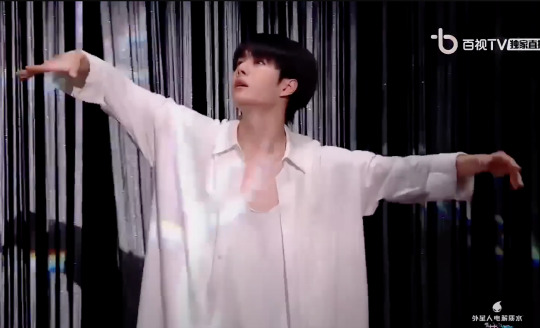
What about the “You” the narrator is talking to then? Applying the same parallel, it would be the green grass, or something like the green grass—young (green), helpless in its inability to escape the seasons, the weather. It’s fearful. Anxious. Dreaming of and already dreading the winter snowfall in April. It’s vulnerable; depressed, some may say, prone to cry with the knowledge, the sadness that Spring will soon leave, not caring enough to stay (LV 4:16) to keep it warm.
But the “You” can’t be just the green grass. The early parts of the song make clear that this “You” not only doesn’t have a name, it shares certain qualities with the night. It’s found among the shadows of the trees under the starry skies (LV 0:29-0:47). It’s awake, if silent, in the night hours (LV 0:47). Dawn is the time the narrator asks for it to tell its name (LV 2:26), implying that the narrator is not expecting it to stay after sunrise.
More importantly, this “You” is who the narrator asks to wake up, like the sunlight. This critical line (LV 3:18) that leads to the climax of the song, that is the song’s namesake, is a suggestion, a plea. This may not be obvious in the English translation, because English doesn’t have an equivalent sentence building block in Chinese known as the sentence-final particle. Such particles—the 吧 (pronounced “ba”) after 像陽光那樣醒來 Wake up like the sunlight in this case—serve the important role of conveying the tone of the speaker. Punctuation marks were not introduced into standard Chinese texts until the early 20th century, and so, such particles are critical in communicating what the speaker actually means in written texts.
Here, the narrator is suggesting. He isn’t commanding. 吧 is softer, more polite than that. He’s asking. Hoping.
The suggestion, the plea for “You” to wake up like the sunlight also implies something important: the waking up hasn’t actually happened. That is only the wish of the narrator; the wish of the narrator that “You” will, one day, be like sunlight and be everywhere, on the crossroads, in the journeys, at sunrise, while dancing in the wind (LV 3:30). The “You”, therefore, has so far remained in the night. Echoing this interpretation, in Dd’s dance, at sunrise (PV 3:28) the “I”, the narrator’s movements turn frantic; he runs around and reaches, searches, grabs, until he finally collapses on the floor, curled up in a fetal position, despaired (PV 4:04):
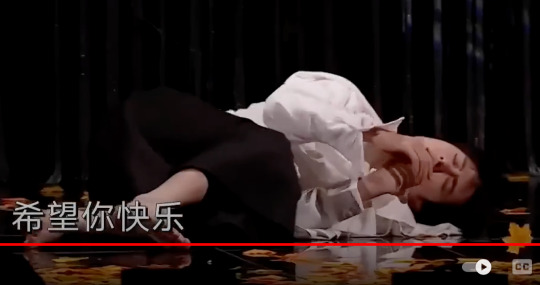
He made a desperate attempt to hold on, and failed.
If the narrator is a bird—a lone bird—the lone bird is alone again. He has lost his companion for the night, his “You”. We know something more about the relationship between the narrator and “You” from this: the narrator doesn’t have the power to change the nocturnal nature of “You”; he doesn’t have the ability to transform “You”, overnight, into his company under the sun. All he can do is to bring “You” small morsels of light, in the form of small fires under bamboo covers, of lights from fireflies. The lyrics tell us what these two lights, both much dimmer, and weaker than sunlight, stand for: the stories the narrator can chat about, the small joys he has picked up during his (daytime) journey.
The narrator and “You” are not soulmates. Not yet. Their separation at sunrise explains why the narrator doesn’t know certain things about “You”, such as “You”s name. That the narrator wishes for happiness for “You” (LV 3:57), no matter where one goes (the lyrics actually doesn’t specify who’s the one going)—the phrasing making this a well-wish—not only suggests that the narrator and “You” are parting ways, it also suggests the narrator doesn’t always have a clear knowledge of where “You” will be.
But the narrator wants them to be soulmates. Exchange not only their heart 心, but their true heart 真心 (LV 1:14). Despite his unfamiliarity with certain parts of “You”, he also has insights about “You” that run deeper than names and locations; he knows “You” hasn’t made peace with the Lonely Nights like he has—it’s one of the reasons of “You”’s sadness, along with the passage of time, along with the carelessness of Spring (LV 4:07). He comforts “You”, tells “You” not to cry (LV 4:17). The tree branches where Lonely Nights renews itself, he says in the end, will not only be the time they shall meet again, but where beauty and goodness 美好 returns, along with Spring (LV 4:21).
This doesn’t sound like a happy story, does it? Moreover, some of you must be thinking, mumbling as well — Huh??? So Dd is singing a song about a bird and some … nighty grassy thing? What does that have to do with him? With anything?
Here’s when I refer to the poems at the start of the post. They are there, of course, for a reason.
You see, the lone bird — the lone migratory bird, in particular — has had a long history of symbolising uprooted people in Chinese literature. By uprooted, I mean the people have been separated from their homes, their home towns, and it doesn’t matter whether the separation is voluntary. Natural disasters like floods, man-made disasters like wars may have forced them to leave, or they have moved because better opportunities present themselves elsewhere.
Like the Sunshine is, I believe, about this lone bird, this displaced group of people.
True, the lyrics never specifies the kind of bird, but the narrator’s awareness of the seasons is the first, if faint clue of its migratory nature. The second, more significant clue is in the stage art — the existence of wide bodies of water and the creatures living in it, neither of which are found, or even implied, in the lyrics.
This bird flies across, or above the waters (PV 3:49):
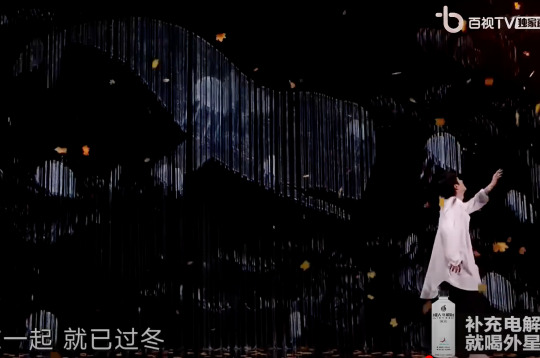
Still, you may ask, there are many migratory birds. Why have I picked poems about the lone swan goose? Why am I imagining it as the narrator of the lyrics? My reasoning is this: while two species of migratory birds have made frequent appearance in ancient Chinese poetry—the sparrows and swan geese—it’s often the latter that was alone. Poets of old tended to depict the sparrows as happy birds, with the sight of their migration signalling the arrival of Spring. As importantly, perhaps, they were usually portrayed as flying in pairs. The swan geese, on the other hand, were associated with the autumn migration, the impending winter and the less-than-happy sentiments from long journeys away from home. Their calls were described as wails. They were often portrayed as messengers carrying morsels of news, of deep yearning, from loved ones who were too far away. Swan geese naturally fly in flocks. They also mate for life. The lone swan goose therefore suggested separation and abandonment. Loss.
But but but ..., you may argue. Why can’t it be … single and available?
* Smiles *. As a culture that heralds collectivism, being alone is rarely, if ever, considered a choice in traditional Chinese thinking. In the old times, in particular, it was considered, assumed to be a less-than-ideal thing that had happened upon the individual. At best, it was some sort of misfortune; at worse, it was a bout of irresponsibility. Both poems about the lone swan goose that started this post are more than a thousand years old. Both are depressing.
This has something to do with what a home means in traditional Chinese culture.
In the Western world and in the 21st century, we associate flying away alone from our childhood homes as part of growing up. It has its challenges, but it’s also exciting. It’s about having an adventure and seeing the world. People don’t think of it as an act of abandoning one’s home, or one’s home abandoning them. The location of the physical home doesn’t matter as much as where those who love you, and those who you love back are.
Home is where the heart is. That’s the saying.
Meanwhile, home in traditional Chinese culture is more accurately described as where the bloodline is. It’s where your ancestors are buried, where you bow before row after row of memorial tablets on Qingming. Where the elders expect their descendants to not only take care of them, but shoulder the responsibilities of maintaining the house and the bloodline, and bring glory to them all.
To be away from home for any reason, even if it’s out of necessity, therefore evokes feelings of guilt, in addition to the sadness and loneliness of being a permanent stranger somewhere else. The longstanding belief that home is where one’s ancestors are means assimilation is next to impossible, both socially and emotionally. Others in the new place don’t think of the migrant as one of them. The migrant doesn’t think of themselves as one of them.
The traditional term for people who live away from their birthplace, their ancestral hometown, is 羈旅. Many of you may be familiar with 羈 — it’s the same character as in Wuji 無羈, and originally means a bridle. 旅 means to travel. Putting the characters together, 羈旅 is a bridled traveller. In ancient times, a bridled traveller could’ve lived in his new town for years—decades, even—and be still considered a guest in the town and his house, little more than a restraint that had kept him there. The consequence of such lifelong alienation was that the deathbed wish of many such migrants was to be taken back to their home towns for burial. 落葉歸根, they called it. The fallen leaf returning to its roots.
Fallen leaves are considered uprooted, rootless.
Fallen leaves appear in the lyrics of Like the Sunshine as well (LV 1:17), describing the passing of Lonely Nights.
In 2023, China has, inevitably, absorbed some of the Western perspectives about leaving home, the independence and self-reliance it nurtures, the freedom it brings. But the old thinking remains, stubborn and at constant war with the new. The Chinese word for freedom 自由 didn’t enter the Chinese lexicon until the 19th century, as an import from Japan. Chasing one’s dream, often the cause of leaving home, is also a contemporary concept—in old Chinese usage, to dream is not a particularly good thing. Ancient Chinese preferred something more tangible. More practical.
The dream in Like the Sunshine is an example. The dream isn’t a particularly good one—snow is a danger for the green grass.
Whereas, Confucius was already preaching filial piety, laying out its rules and rituals 2,500 years ago.
Government policies also reinforce the feelings, and “guest” status, of the modern bridled traveller. Chinese are attached to the provinces of their birth by their 户口 hukou, a household registration system that allows the government to control the flow of its population within the country, which is arguably necessary due to the vast disparity in resources from province to province, and between the villages and the big cities. When a Chinese moves somewhere else—to a big city like Beijing, for example—their hukou doesn’t move with them. Without a Beijing hukou, the migrants’ rights to buy a house, even a car, in the city are restricted. They are often overlooked by companies, which prefer to hire Beijing hukou holders, while the migrants already have little safety net should they fall into economic hardship, not being eligible for most of the local government assistance programmes. Children must go back to their hukou’s province for their college entrance exams, when top universities admit students with a Beijing hukou at a much, much higher rate — in 2011, Beijing University’s admission rate for Beijing hukou holders was almost 30 times that of Dd’s home province, Henan.
While a points system is in place for those who wish to apply for a Beijing hukou, the latter remains so difficult to get, so coveted that there is a black market for it—the price tag justified by the need to “make the right connections within the government”, i.e., to bribe. The current price isn’t something I’m privy to, but back in 2012, the state media reported that it was already at 500,000 RMB (72,480 USD).
It’s a sum of money the poor can't afford, not to say such a purchase is, of course, not exactly legal.
Yet, there are still so many modern bridled travellers in China that they have a collective descriptor: 漂族 The drifting race. 漂, meaning to drift and pronounced “piao”, also appeared in the lyrics, describing the fallen leaves that, in turn, describe the Lonely Nights (LV 1:17). Fallen leaves, as mentioned before, have been used to describe the rootless—and specifically, those approaching the end of their lives.
Drifters who have drifted to Beijing are known as 北漂 — 北, or North, is from 北京 Beijing, which literally means The Northern Capital. In 2021, this population amounted to more than 8 million people, or 38.5% of the city’s permanent residents.
This population also includes Dd and Gg. Dd and Gg may be stars, but at the end of the day, they are just another two youngsters who have left their homes for a big city to try their luck.
For Dd, in particular, Beijing isn’t even the first place he has drifted to. His first was not only another city, but another country—South Korea. Of his short 25 years on this planet, he has spent 14 of them as a bridled traveller, and many of these days he wasn’t even bridled, his home being a hotel room somewhere. Everywhere. Meanwhile, expectations remain that he should view his birthplace, the city of Luoyang in Henan, as his home. He has been repeatedly asked to perform in Luoyang / Henan’s dialect, even though he has, also repeatedly, said he isn’t fluent in it (two examples from CQL’s promotional period alone: Vid 1, 1:55; Vid 2, 5:47). His selection of Cola Chicken Wings as his favourite dish for Chinese New Year (Vid, 3:56), being a cute candy aside, also suggested a certain degree of detachment from his supposed home city. Most people would have named a dish from their home place without prompting.
Yet, strangely perhaps, Dd has also exhibited a strong affinity to Home, as a concept. When it matters, his connection to his ancestral home seems almost tighter than other’s. There are hints, too, that he’s meant to be living in a home-is-where-the-heart-is home, when, with his history, many may assume that he’s comfortable, if not more comfortable with being uprooted, being rootless.
Dd was there to help with the rescue effort for the floods in his ancestral home of Henan. He was there despite of the skepticism he must know he would get, and he did get it. Meanwhile, his years drifting in S. Korea, in Beijing haven’t appeared to have assuaged his fear of the dark, which may, perhaps, be as well understood as his need for companionship. Not the “let’s go party together” kind of companionship—Dd doesn’t have a reputation as being a party animal, not even in the most gossipy, most vile of YXH blogs—but the “let’s-be-together-when-it’s-dark-and-silent” kind of companionship, the kind that requires far more closeness … intimacy, if one will, and trust. As night falls, he appears to require the presence of another human being to feel safe, to fall sleep. On record, he had sought such presence by tactile confirmation, as his old team mate once pointed out (0:44), or by finding an imitation—the voice from a non-hostile, trusted source such as the CCTV Sports Channel (23:15).
I can’t help but feel: both of these are pale substitutes of what Dd can get from a home-is-where-the-heart-is home.
Some people don’t mind being alone. Some even enjoy being uprooted. Dd doesn’t seem to be one of them.
He isn’t the only one. There are many other young Chinese drifters who have elected to drift, but also wish for an ancestral home, a home-is-where-the-heart-is home, to return to at the end of the day. The hardship of the drifting race has been well documented. Many spend the night alone in the tinniest, cheapest apartments in their new city, exhausted from a day of “rushing”, depressed from missing their loved ones and anxious about their new environment, their new job, their being from a poor province that big cities tend to look down upon.
They worry. Many have promised their families back home that they will mail back money with their higher income in the city. After all, a good fraction of them only manage to secure employment in the big cities after their family—their parents, their grandparents—exhausted most of their savings to pay for their college education. They want to repay these elders who love them. They want to bring glory to their blood line. These expectations, both from others and from themselves, have never gone away.
They cry. At night, mostly, when nobody can see them, because they must put on a brave, mature face when the sun is up. With the guilt associated with leaving home, with the investment of time and money and effort required, the decision to leave is seldom made lightly, and many of them are set on making their journey a worthwhile one.
As one Beijing Drifter from Chongqing said: Even if I have to get on my knees, I’ll take this path to its end. (Vid,13:38)
If time and space are limited, how would I succinctly describe these drifters? How would I depict them with a simple piece of artwork? I’m no artist, and so, Google is my friend and perhaps, this is what I'll find and show:

(An off-angle shot of this in the performance is found at PV 4:28)
The hunched back, overladen with guilt and anxiety, and often, too, with the weight of expectations. The paper plane, representing their pursue for a better life. Flying high while being small, childlike and vulnerable.
The last three years of Zero COVID policy have not helped with the drifting race’s predicament. Chinese New Year is usually the time the drifters travel home to visit their family, but many didn’t for the last three years. Leaving the capital city, especially, had been heavily discouraged by the local government, for fear those who did would bring back the virus when they returned. Travelling also created a risk of being subjected to involuntary quarantine, or of being given a yellow or red COVID health code that would bar them from returning to the city, too often for long enough to jeopardise their employment.
These lone, migratory birds are, I believe, what Like the Sunlight is about, and who Like the Sunlight is for. The teary faces these drifters don’t allow to see the day, that stay awake and silent after night falls, is the “You” of the song — young (green), worried about their future and the challenges it will undoubtedly bring (winter snow), still not used to the lonely nights and wondering if anyone cares, realising that even the kindest souls can only do so much for them with their own obligations to keep, their own routines to follow (Spring).
The “You” doesn’t have a name because it’s actually a part of the lone migratory bird, the narrator. The “You” is both familiar and unfamiliar to the narrator because it harbors his deepest, most hidden if also the most unadorned and sincere feelings—feelings that must leave, return to the dark when the sun is up.
The Chinese work environment is very much survival-of-the-fittest. Competition is fierce. Work load is brutal. Youth and immaturity, sadness and fears have no place there.
I imagine, Dd chose this song because he, too, has been one of these migratory birds, one who left home at an even earlier age than others, who flew even further away than others. At 25, he has already spent more than half of his life drifting, and this experience must have left a mark on him, he who was (is) so adversed to being in the dark and being alone. One may argue that Dd is so much luckier, that his job now pays so handsomely that the financial woes that plague most other drifters will never touch him again. That is true, but no compensation can alter the fact that his job is also among the most isolating. His every move is watched, his every associate placed on a scale and judged—is Dd too good for him, or not good enough? His hastened journey, his flight through the stormy clouds of c-ent is further darkened by the thick wall of hounding paparazzis and sasaeng fans.
As turtles, we believe his heart has found actually found a home. But we also know that he’s separated from that person for most of the year. We know, too, that because of the common practices in his line of work, because of cultural norms and government policies, he can’t turn himself from a lone migrating swan goose into half of a pair of happily migrating sparrows. He can’t even be seen in the same camera shot with his him. He may not have to worry about money, but he has to worry about the ever fickle, ever brutal public opinion. He may not be anxious about his next pay check, but his industry has been ailing, and many relies on him, directly or indirectly, for their pay check.
At some point, I imagine, there’s got to be a “You” in Dd too. A “You” that is his actual age, not the age of his maturity. A “You” that, after the night falls and all is still and quiet, frets about what will come and that, just like other humans, is prone to being brokenhearted when its trust is misplaced.
A “You” that still doesn’t want to be in the dark, to be alone.
And he must have talked to this “You”, comforted this “You” inside him. He must have done so in the lonely nights, which he has made peace with after so many years of travelling, the lonely nights that he now sees as benign—always returning, true, but isn’t it just like the seasons, with their falling, drifting leaves, followed by their constant renewal on the branches? He must have shown this “You” the morsels of joy he picked up during his day time journeys. A cool skateboard trick he mastered, maybe. A new dance move. A freshly delivered box of limited edition Lego. The company he kept when these things happened; the company that made these thing happen.
He must have wished his “You” happiness. He must have wished it to be like sunlight, to be something that can be out there in the open for all to see and is light and free enough to dance on the journeys with him after the sun rises, at the many crossroads he must pass. To me, what this performance practically shouts to the world is: Dd may be taciturn, but he’s expressive. There are things deep inside him that he wants people to know, to understand, if just so that others who feel the same can whisper “Me too”. He must have been disappointed before, despaired that that hasn’t happened, that his “You” has remained in the night, that this soft, gentle part of him has to be wrapped up and hidden from public eye and he must put on a brave, mature face when dawn breaks. But he’s making peace with that too. After all, the “You” that stays in the night keeps him company when there’s no one else. He recalls the small joys of his life for it, recounts the small joys of his life to it. He exchanges his true heart with it, acquaints himself with his deepest, most unadorned, natural feelings—feelings that he keeps from other humans, from civilisation.
Despite dreading winters, this “You” in him has helped him through the winters.
I would insist that Like the Sunlight is a positive song, in that it’s about acceptance and healing—not the outcome of healing, but the process of healing. At the same time, I also recognise that it isn’t a positive song the way positivity is conventionally defined in their country: that everyone is living a happy, inspirational life, that wounds are no more than plot points leading to a climatic preaching scene. I see open wounds in the dance performance. I see pain, and I appreciate it not because I enjoy seeing anyone hurting, but because unlike so much of their country’s entertainment, it doesn’t pretend that such wounds don’t exist, or that they can be healed and numbed by some stock phrases of encouragement, a few slogans, a chant of core socialist values.
To pretend such things is to make light of pain, to diminish the humanity that makes the pain.
Healing isn’t a game of mathematics, in which fortune in one area cancels out the misfortune in another. Just because one has an illustrious career, or even, an enviable romantic life, doesn’t mean they can’t be hurting somewhere still. Healing is slow. Healing is difficult. Healing is patching a wound, the deep hollowness within, with one firefly light after another. Healing is to have the wound ripped open again and again at the most unexpected, most inconvenient of times, and still believing, insisting that the wound will close one day.
Healing is learning to accept that the hollow is there. To make peace with it. To see it as part of oneself.
Healing is to wait, to be patient season after season.
These aren’t viewpoints that public figures in China can express freely, or at least, without great care. Recognition of the existence of real, open wounds, of the pain they inflict, may be misconstrued as dissatisfaction about the country’s way of life, and the powers that be that make their way of life the way it is. Public figures in entertainment, in particular, are far better off in 2023 being talked about as role models of the government-approved kind of positivity, their work as vehicles for warm fuzziness and slogan-y life lessons. Sunlight is everywhere, always. Sunlight is a reality, never just a wish. Embraces happen under the sun and with the sun, not in and with the darkness (PV 0:40). And such things are to be represented as observations, as what the audience sees, even though the lyrics doesn’t say it, the stage art doesn’t show it, the dance choreography doesn’t suggest it.
Chairman Mao was the Red Sun.
How far does this insistence of positivity go? The following is a digital banner photographed in a Chinese hospital a week ago. The bright red banner looks, and is, congratulatory. Something very happy has happened! What is it about?

This: Good News! On 2022 December 21st, Our ER department has served more than 2 million people (Source).
The surge in patient visits was due to the country’s 180-degree turn in its Zero COVID policy, and the associated surge in hospitalisations and yes, deaths.
The next day, a crematorium’s notice wrote the following about the doubling of corpses it had processed over the course of a week: 受到了群眾的好評和領導的肯定 ... 確保年底前各項工作任務圓滿收官、爭創佳績. (The work) has been well received by the masses and affirmed by the leaders... (we shall) ensure all our year-end responsibilities will have a perfect curtain call, and strive for the best results.
This is how strong the country’s insistence on positivity is. Humans are behind the banner, the notice. Do they understand the less-than-happy, less-than-inspirational sentiments behind the ER visits, the deaths? Of course they do. But this is how much people are being pressured into saying happy, inspirational things these days. This is the length people are going to avoid saying things that are otherwise, at the intersection between 2022 and 2023.
And so, I shall say this again—the above interpretation is entirely my own, from my angsty fic writer’s brain, and have nothing to do with any interpretation, explanation or review available on the Chinese social media, which are all happily, inspirationally and most importantly, appropriately positive. It’s my being obstinate and ridiculous and delusional that makes me disagree with them, that makes me confess the following:
I have doubts about the … honesty of certain things that have been said.
The explanation offered by the studio about the stage art, for example. The explanation says, the art depicts a fantasy, which culminated to the narrator finding his lost home and that union leads to a finale of golden light passing through the clouds, waking up millions of lives and souls.
I have doubts because I have trouble matching it to what I saw. While the exact moment can’t be pinpointed due to the camerawork, the shade of red on Dd’s face suggested that the sun, the golden light, started shining at the PV 3:28 mark. At that moment, the creatures, the lives and souls remain on screen, thriving in the dark, in the nature. As the sun continues to rise, they are lost, transformed into (lifeless) objects from civilisation—things like furniture and laundry lines. Finally (PV 4:24), the lone man appears, united with his home in that he’s carrying it like a burden on his back. Not one life or soul appears after the man and the house did. Dd’s final interaction with the stage art is to walk towards the man, the uprooted house that just had a paper plane fly out of its window.
The stage art thus presents a story that is almost opposite of the explanation given: the rising sun, in fact, drives away the creatures, the lives and souls and nature that accompanied the narrator before. The civilisation the narrator returns to has nothing but a home that is rootless—in contrast its being rooted at the beginning of the performance (PV 0:10)—and its paper plane carrying, one may presume, a fragile childlike dream.
Winter is turning the corner, the explanation says in its conclusion. Warmth has arrived, unexpected. The stage effect, meanwhile, is a wild dance of drifting, yellow autumn leaves. Winter may indeed be turning a corner, but it’s more likely to be doing what the green grass has been dreaming of, afraid of. It is lurking, waiting for the right moment to bring in the cold, the snow.
As such, the stage art goes well with the lyrics—assuming my interpretation isn’t too off the mark. As such, the stage art also, in my (obstinate, ridiculous, delusional) opinion, sets the explanation’s pants on fire.
The thing I can say about the explanation is … it’s positive; it’s a good thing to say on record. Even the flood isn’t real.
Another thing I can say is: to everyone reading this, please trust your senses. Please believe whatever the performance makes you feel is real. Don’t let anyone tell you, this is the proper interpretation. Don’t listen to anyone who says, this is how you’re supposed to think. Including me. Including this post. Even if a language barrier exists, music is universal. Art is universal. Movements are universal.
Okay, this is getting ridiculously long, which is hardly surprising 😊. One last thing. Some may be asking (assuming you haven’t all fallen asleep)—do I think there are candies in this performance?
Frankly, I don’t think there are any on the surface. Not in what was sung, or illustrated, or danced. However …
If you’re a lover / follower of LRLG like I do, you may remember the famous episode (#6, published 2020/12/25) that talked about Dd keeping Gg’s ring in his pocket while he sang. Another confession: the ring part was never my favourite from the episode. Instead, it was this tiny piece of conversation that few likely recall:
(Context: Dd had to make an overnight car trip to somewhere else after the show. Gg was staying. They just joked / wishful thought about Dd bringing Gg with him.)
❤️: You know what to do after you get on the car?
💚: Didn’t you say you’re leaving with me?
❤️: Turn on video conferencing. I’ll watch you sleep.
While fake rumours are officially fake, certain elements have made repeated appearances—such as, Gg and Dd often have their video conferencing on, even when they are doing their own things. They keep each other company that way. And this snippet from LRLG isn’t the only one that further specifies what happens at night—that when they are apart, Gg and Dd would have their video conferencing on when Dd goes to bed, and Gg turns it off after Dd falls asleep. This candy made a strong impression on me because I recalled how much Dd disliked the dark, and being alone, and I thought, how comforting it must be to him for that dislike to be acknowledged, to be taken seriously as a thing to be addressed. I’m an aroace; I can’t say I know much about romantic love. But something I do know about love—any kind of love—is this: it’s to give the other person what they need and not what I think they need; it’s to not question why they need it, to not brush the need off because it doesn’t apply to me, because I don’t understand it.
This three-line conversation was filled with love. Gg, offering what Dd needed matter-of-factly. Dd, being comfortable enough with the offer for him to keep the silliness going.
This offer had to have been made many times before. This offer had to have been received, and appreciated, many times before.
Imagine Dd on his journey after this conversation, him drifting off into slumber while clutching his cellphone, the latter dimly glowing in the dark vehicle as Gg watched him. Who can say that Gg wasn’t, at that moment and at every other moment like this, being the firefly light in Dd’s palm?
He must have made so many firefly lights for Dd. The firefly lights that Dd shows his “You” in lonely nights.
He must have been the fire under the woven bamboo. He in his long coat and oversized scarf, his eyes playful and twinkling like embers, his smile bright and warm and sweet like the fallen petals that mark the passage of time. He must be very good at fighting off winters—he who can’t make a proper snowball to save his life.
And when the lonely nights visit again, when Dd’s “You” is awake and silent and waiting to hear stories, Dd gets chatty.
We all know this, right? Dd always gets annoyingly, adorably chatty when this fire under the bamboo lights up. 💚💚💚
133 notes
·
View notes
Text
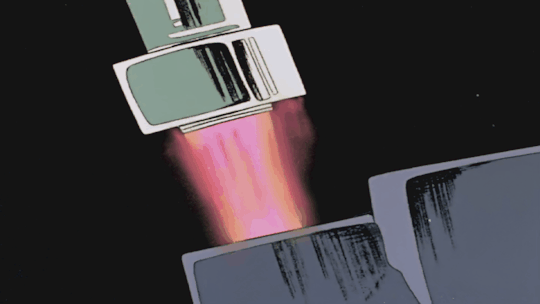


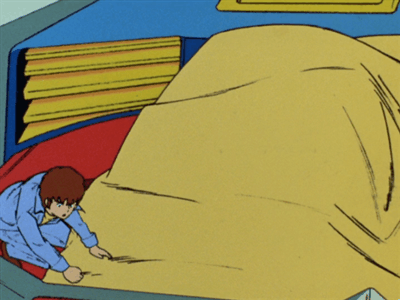







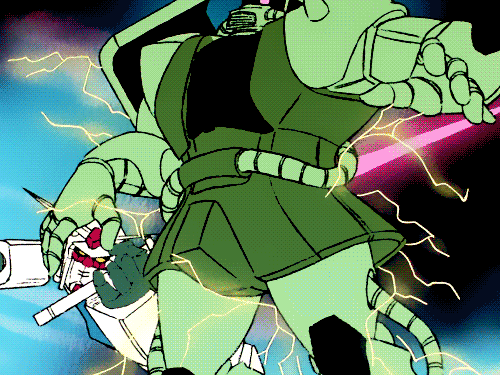
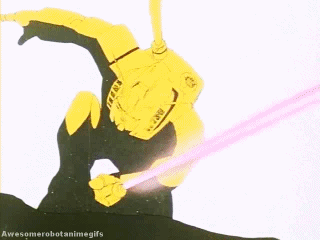
1979年4月7日機動戦士ガンダム」放送開始。UC0079「ガンダム大地に立つ」
#Apr.07.1979.#Mobile Suit Gundam#ガンダム0079#初代ガンダム#ガンダム大地に立つ!!#GUNDAM ON THE EARTH#Amuro Ray#ZAK-Ⅱ#gif
34 notes
·
View notes
Text
網友面面觀
藝文世界副刊
陳漢平
(5月&6月徵文:網友與我) 2024-05-11 02:02 ET

人生在世,不能沒有朋友。良好社交生活,是快樂泉源、健康密訣、財富動力。早在網路時代之前,在商場職場上「建立人脈」,西方人稱之為「打網」(Networking)。可見人際關係發展,首先為了事業,然後才為了愛情。
在科技圈裡,有一種網友,最令人敬佩。他們像江湖上的俠客,路見不平,拔刀相助。早年我參加科技論壇群組,曾遇過這樣的網友,他們對朋友只有付出而不期望回報。當我使用科技產品遇到瓶頸,正在求助無門時,這樣網友會挺身而出,他們只要三言兩語,就如當頭棒喝、醍醐灌頂,立刻振聾發聵、指點迷津,使難題迎刃而解。受到這種網友的精神感召,之後當其他網友遇到難題時,我也樂於主動施援。●
架設全球網路最早原因��原本無關風月,不是為了娛樂交友,而是為了科技研究。
網際網路上第一則訊息,在1969年,從我的母校洛城加大傳送到史丹福大學。傳送成功那一刻,師生們都雀躍不已、奔走相告,其興奮程度不下於同年的阿姆斯壯登陸月球。
隨後全美各地各大學,陸續加入網路,電腦科系研究生們開始設立帳號,傳送電子郵件。
電子郵件裡除了交換研究成果之外,難免東拉西扯、故作幽默,聊一些雞毛蒜皮、風馬牛不相及的小事。這些人成為世界上第一批網友。
或許當時也有情竇初開的研究生,趁別人不注意,偷偷傳送愛情告白給暗戀的人,那就是世界上第一場網戀。
●
在網際網路之前,全世界最熱門的交友平台是什麼呢?它也是一種網,是「業餘無線電網」,也遍布全球、無遠弗屆。它的呼叫信號是CQ,是英文Seek You的諧音。
別小看這種「無線電網」,它是今日行動電話的起源。另外也是今日「網路群組」的起源。群組的前身是「網路聊天室」,最有名的聊天室借用了無線電網的術語,稱為ICQ,在2000年代曾在互聯網上風行一時。
當年想問鼎白宮的美國參議員高華德,曾炫耀自己是無線電網的鐵粉,經常透過無線電網,和全球「無線網友」聊天,在台灣有人曾收到他的呼叫信號,和他聊過天。
我在新竹交大時,曾參加校內「無線電研究社」,是全球無線電網的一個連結站。記得當年曾有人問我們:「你們是業餘無線電網會員嗎?」我們很驕傲地回答:「不是,我們是職業的。」
後來「無線電網」擴充領域,在汽車上加裝「無線電收發機」,成為一種行動通訊裝置,稱為「公民頻道」(Citizen Band)。夜間開車的貨車司機們喜歡用來和陌生人聊天、瞭解路況。
其後,逐漸演變成行動電話、智慧手機,不讓個人電腦專美於前。
●
「工欲善其事,必先利其器。」如想善於結交網友,首先要找到一個適合自己發揮的平台。這個平台,是個舞台,有時形同擂台,是網友們注目焦點。
其次,還要有熟練的自我表達技巧,將自己的人格特質、想表白的重點,以最有效的方法傳達給對方。
於是,「簡訊文學」就應運而生了。它的最大特色是使用最簡短字句、最少字數、最帶衝擊力方式、最可愛表情符號等,來包裝訊息。唐詩的迷人之處,是簡潔明快。網友的簡訊也效法唐詩,如蜻蜓點水,在平靜水面上激起陣陣漪漣。
除了表達自己之外,網友們尚須充分瞭解對方。在網路時代,如想瞭解你的網友,並不算太難,只要善於運用網路資源。「凡走過的,必留下痕跡。」在網路上,很難長久保護個人隱私。更何況有些人還刻意打知名度,增加自己的見網率、點擊率和網路聲量。
谷歌上有對方的生平、學歷、經歷;IG上有對方的照片;領英上有對方的職場履歷;臉書上有對方的同學、朋友、四等親屬。無論他做什麼事、參加什麼社團、寫什麼文章、發表什麼意見,在網路上都可以找到蛛絲馬跡。
●
登山有山友,唱歌有歌友,喝茶有茶友,旅行有旅友,上網自然就有網友。許多山友、歌友、茶友、旅友,在組成網路群組之後,也都變成了網友。
這種「實體朋友」的「網友化」,是一種潮流趨勢。目前許多同學會、校友會、同鄉會、專業協會,在「網友化」之後,非但不會式微,反而更加蓬勃發展。
實體朋友的缺點,首先受限於地理位置,朋友們必須住在同一個城市,至少要在同一個地區。其次,每次聚會都要安排恰當的場所,每人都要開車、停車。見面時必須穿著整齊、舉止端莊。還要準時到場,適時離場,其間注意力要集中,別接電話、滑手機。網友化之後,就海闊天空、任意翱翔,不再受任何限制了。
網友和實體朋友相比,有多項優點。首先,兩人都保留住一些私密空間,不會為日常生活小事而相互干擾,也不會因對方在場,而時時刻刻保持謹言慎行。
其次,兩人興趣不盡相同,生活步調也不一致,網友平時可隨興過自己的日子,不必勉強配合對方。
另外,無人有完美個性和外貌,隔著距離,各人都能好好包裝自己,塑造出完美形象,使對方更加喜愛自己。同時,也能任意美化對方,使對方符合自己理想標準,而更加喜愛對方。
當然,網友也有幾項缺點。因不能見到面,心裡總是感到不踏實,缺乏安全感。
因沒有朝夕相守,有時關心對方,卻不知道他此刻在哪裡、做什麼事,難免心中忐忑不安。並且,對方將來如發現了自己一些缺點,感情會不會生變?還有,自己將來發現了對方一些缺失,熱情會不會消減?
●
除非有一天,網友中有一方痛下決心,要「快刀斬亂麻」,坦然面對現實,使雙方揭開神祕面紗,約好見一次面。如果雙方或一方不滿意,乾脆「長痛不如短痛」,免得一直猜測疑惑吊胃口。
像這樣虛擬網友相約會面的場合,有人稱之為「奔現」,大概是「奔跑現身」的意思。如果奔現失敗,就稱為「翻車」,意思不言而喻。
網路上充斥著一些「奔現翻車」的冷笑話。其實大家對此應該「哀矜勿喜」,別幸災樂禍地去消遣他們。
●
網友交往雖然趣味盎然,但也有風險。一方雖有心投入情網,另一方卻可能已布下天羅地網,就像蜘蛛編織了巨網,等著獵物自投羅網。「網路如虎口,行人小心走。」要記得「防人之心不可無」,有意結交網友的人,需善於好好保護自己。
虛擬網友就像虛擬貨幣一樣,有人利市百倍,有人血本無歸。虛擬網友也像虛擬實境遊戲一樣,雖當時令人著迷得如痴如醉,最後卻似海市蜃樓,消失得無影無蹤。
網路是虛擬的,網友卻不能是虛擬的,必須真有其人、真有其事、真有其心。歸根究柢,科技只是在模仿大自然現象。在虛擬世界裡所發生的事,不論再怎麼離奇,在現實生活中也照樣會發生。
真正朋友,無論實體或虛擬,都需要開誠布公,不能太過於理想化,每人有優點也有缺點,形勢有佳境也有逆境。雙方要能苦樂同享、榮辱與共,承受得起時間和環境考驗,要可長可久、不離不棄、互相照顧扶持、安慰鼓勵。
●
今日網路的虛擬世界,如同古代的武俠世界。走在江湖路上,會遇見俠客,也會遇見盜賊。
在網路上有緣相逢,結為投契的網友,其中的點點滴滴、雪泥鴻爪,都值得珍惜回味。(寄自加州)
0 notes
Text
歷年交通部航海人員測驗通過名單
榮譽榜
榮譽榜
2021/03/12
歷年交通部航海人員測驗通過名單
112年度第四次交通部航海人員測驗通過名單
李友賢 陳冠廷 吳悅恩 紀琪云 湯育銘 廖子軒 金智勇
李悦恩 陳芮蓁 鄭楚玄 吳怡儒 陳冠典 林政閔 郭彥呈
林昕穎 柯博壬 樊洪範 王 曦 陳紜璽 金祺昌 彭吉民
112年度第三次交通部航海人員測驗通過名單
吳峻安 陳威仁 吳舜齊 歐乃瑄 何凡宜 賴冠勳 唐聖傑
張 傑 李沐澤 張安志 張哲源 黃曉祺 鄔翎民 鄭淞元
黃建智 陳俊儒 林秉緯 董翊河 賴柏安 黃勖堯 叢浩日
黃維貞 莊妤薇 童威凱 宋家興 黃苡寧 呂俊諺 王 敬
陳奕丞
112年度第二次交通部航海人員測驗通過名單
曾傑興 陳飛馹 洪笥宸 黃薏珊 黃柏豪 王聖燁
廖柏銜 蔡怡安 黃博裕 郭裴珞 潘家偉 李 韡
112年度第一次交通部航海人員測驗通過名單
吳建鋕 鄭乃豪 吳奕翰 李峰綸 呂孟修 柳理鈞
鄭衣涵 彭盈瑾 吳姿樺 蘇榆傑 林宏宇 邱 頎
陳加寶 黃盈樺 許秉毅 黃祥銘 柯秉志 蔣鈞傑
謝印荃 蔡佳佑 施健安 顏毅祺
111年度第四次交通部航海人員測驗通過名單
劉耀文 李光燡 鄭名登 張謝仁傑 臧紹棠 藍囿竣
陶子天 卜 野 蔡沛全 屈恩霆 戴維彥 黎丞軒
陳坤華 陳宇祺 莊凱傑 劉柏裕 張宸瑄 林子軒
應德樫 吳玟玟 陳莞昀 許家洋 王彥翰 董昀澍
秦詡洋 蔡國禎 蕭瑋呈
111年度第三次交通部航海人員測驗通過名單
蔡承展 王邦宇 李明穎 王哲明 陸泓瀚 陳冠元
薛雅琪 黃維慈 楊鈞皓 蘇柏鴻 翁定謙 張澄明
紀明輝 劉家綺 陳昭穎 林佩諠 謝明翰 潘品瑜
呂信宏
111年度第一次交通部航海人員測驗通過名單
吳雨修 陳彥旭 王柏騰 王靖元 龔俊霖 高家維
陳麒元 劉朝瑞 邱毓媜 高瑜懃 郭紋均
110年度第四次交通部航海人員測驗通過名單
陳兆群 陳孟唐 楊智凱 蔡欣哲 陳冠宇 蕭可豪
葉建邑 黃彥欽 陳奕岑 傅振宣 陳志瑜 林儀靜
林俋帆 廖懿德 陳明穎 陳平宏 林宇晏 金莒譯
鄭貫良 曾榮威 林佳虹
110年度第三次交通部航海人員測驗通過名單
黃子駿 高平羲 李順意 林禹丞 林義昇 蘇善豪 劉永上 賴映璿
楊展銓 涂珮甄 王昱翔 汪筳逸 李香霖 方立文 呂子聖 蔡金洧
鄭學禮 張登壹 洪子晴 羅加舜 金知永 陳冠瑜 黃怡瑄 劉姿瑩
劉子琳 李挺瑋 劉文揚
110年度第二次交通部航海人員測驗通過名單
本次測驗因疫情取消。
110年度第一次交通部航海人員測驗通過名單
陳銘堯 曾冠銘 胡峻瑋 蘇文芯 林濬承 許慶成 姚羽珊 楊智凱
侯書堯 廖英順 李毓寧 賴政穎 王鈺馨 黃子庭 賴秉程 詹興瑋
慕 丞 林彣珊 鍾采君 劉峻廷 邱晉偉 張皓翔 余 崢 陳宗慶
孫 靚
109年度第四次交通部航海人員測驗通過名單
朱峻葳 黃紹輔 謝添旺 朱正育 張廣澄 楊秉鈞 林澔暐 高伯宗
連泓安 顏筱甄 蔡淙和 黃伯凱
109年度第三次交通部航海人員測驗通過名單
王律翔 馬碩澤 秦得仁 鄭琰勳 徐允恩 許碩軒 涂修銓 曾宇質
蔡翔宇 王順漢 蔡朝景 陳昱言 陳建智 蕭丞恩 郭宜雯 洪脩益
紀以謙 郭博彥 洪閔德 朱芳琪 呂偉豪 王啟哲 康翠芳 劉沛禎
蕭仕揚
109年度第二次交通部航海人員測驗通過名單
鄞嘉慧 曹 彤 吳祐緯 林宥宗 何勝揚 黃靖翔 陳威宇 石光仁
潘千瑞 余柏樟 沈芳妤 王昱筌 游家慶 沈琮德 沈得桓 曾丞佑
劉彥輝 龔世宇 林彥均 郭偉達 呂學杰 林昆毅 蘇聖欽 陳 翰
109年度第二次交通部航海人員測驗通過名單
本次測驗因疫情取消。
108年度第四次交通部航海人員測驗通過名單
洪郁雯 李 吉 林安蕎 張家偉 陳立朋 吳東翰 姚冠名 郭學頤
陳昫耘 顏情晴 陳均軒 簡呈宇 楊翊愷
108年度第三次交通部航海人員測驗通過名單
許至賦 曹家豪 吳哲瑋 黃信鈞 陳道賢 楊智雄 陳冠恩 劉奕頡
黃熙宇 洪佳琦 張博堯 陳冠丞 楊政達 葉重宏 吳宛蓉 陳柏霖
張宇鈞 胡榮發 楊崇杰 顏碩慧 蔡承叡 黃昶豪 許釗華 陳致恩
陳語謙
108年度第二次交通部航海人員測驗通過名單
林怡馨 林佩璇 曾玟靜 李 明 戚瑋宣 徐廣圻 陳以諾 孫暐翔
楊沛珍 鄭為遠 張朝復 涂易瑜 吳旻憲 洪榮佑 馮郁軒 吳佩芸
陳琇瑩 翁浥迪 蔡定志 陳彥均 葉志鵬 許心茹
108年度第一次交通部航海人員測驗通過名單
喬䒩薷 陳子博 孔繁軒 楊旻桓 李名仁 歐嘉玲 陳奕鴻 黃臣延
盧至恒 馬菀嚀 許䟫源 龔士翔 劉宏倫
107年度第四次交通部航海人員測驗通過名單
吳晴杰 陳家馨 劉仲傑 林政廷 李孟霖 陳銘仁
107年度第三次交通部航海人員測驗通過名單
廖振超 江欣學 潘祥漢 洪正霖 張豪中 陳民旻 陳弈叡 葉原銘
鄭亘庭 葉祐廷 葉信旻 曾多郁 鄭凱軒 陸宜宗 陳冠璿 張寶智
江佳臻 楊曜宇 趙國程
107年度第二次交通部航海人員測驗通過名單
邱瑜惠 許郁培 陳翰星 陳昱先 莊蕙羽 曾宇鞍 張睿宏 陳靜儀
周琬絨 吳協益 王相智 許瑋庭 邱子倫 閆景宇 吳宗憲 莊爾修
107年度第一次交通部航海人員測驗通過名單
林宏洋 王宗政 曾詩忠 郭沂道 范廣玉 郭阜達 黃 笙 游竣凱
林群翔 林谷翰 汪宗宇 王竣薰 黃煜超 賴仁傑 李俊廷 黃赫立
陳柏皓 蘇泓文 林祥億 呂柏樺 吳錫安 李孟霖 林資堯 蘇美娟
吳宗翰 沈丞潁 戴岳軒 張家瑋 黃孝瑞 范家銘 沈文彬 廖尉翔
黃炫縢 曾詠鈞 陳妙盈 李庭瑜 梁秉辰 葉馨憶 辛萬億 陳維萱
許志豪 張閎涵 詹皓閔 吳連恩 洪綺郁
106年度第四次交通部航海人員測驗通過名單
許詠媛 蔡政宏 林峻民 許秦維 林駿吉 趙瀚恩 張皓翔 張晏碩
李珮瑜 王 騰 張睿鈞 李聖昱 張文憲 范乃歡 蔡博文 洪嘉揚
曾威榮 陳政廷
106年度第三次交通部航海人員測驗通過名單
陳柏翔 王翊名 孫朝義 王泓逸 許文豪 龔世豐 葉宗憲
106年度第二次交通部航海人員測驗通過名單
黃彥文 邱光輝 林羿羚 馬瑞遠 傅志豪 劉耘辛 陳政廷 朱冠溱
王奕云 邱胤文 陳彥均 徐 旻 葉品樂 童銘澄 林瑞紘 林佳泓
林胤名 沈立翔 陳盈佐 王崇任 方建宏 朱 昱 馬崇恩 施振宇
田宗翰 吳承翰 賴昱傑 林承緯 黃至煒 簡舒苗 吳佳霖 黃幸星
吳珮瑗 魏郁庭 蘇育萱 王映庭 黃致捷 許秉閎 粘銘翔 巫嘉瑋
莊逸椽 鄭哲誠 鄭崴鴻 邱亭芝 曹廷筠 郭柏賢 施奕如 廖柏彰
毛漢瑜 許明理 蔡承杰 孫大程
106年度第一次交通部航海人員測驗通過名單
黃基軒 江重毅 鐘承志 許雅如 林伯翰 吳仲軒 王家偉 張家瑜
藍家盛 黃祺翔 蔡孟欣 林于暄 楊婷儒 林煒翔 戴俊丞 袁乙天
陳厚凱 詹前奕 黃耀德 吳宜興
105年度第四次交通部航海人員測驗通過名單
張雅嵐 謝翔任 連育瑩 蘇冠綸 宋亞翰 吳清元 楊子毅 陳威仲
謝晉銘 陳奕儒 邱欣灝 陳柏文 羅 穎 黃奕姉 劉曉青 陳宣余
105年度第三次交通部航海人員測驗通過名單
陳柏宏 洪翊庭 楊卓翰 陶玉龍 黃馨億 張耿豪 陳裕翔 欒又鈞
劉昊融
105年度第二次交通部航海人員測驗通過名單
施自雄 蘇群閎 蔡瑞洋 張紹敏 楊佳銘 曾泰航 高舜業 吳中博
甘龍諭 褚原鑌 彭有國
105年度第一次交通部航海人員測驗通過名單
馬亞聖 黃湣傑 許鼎宗 陳昱中 陳祈維 陳奕睿 賴立凱 王玉萱
李靖群 蔡雨諦 郭丞恩 賴啟堯 呂昭諭 洪振華 賴澔興 郭家豪
林志華 洪敬翔 邱元昱 李翊甄 陳柏奕 陳琬菁 蔡岱庭
104年度第四次交通部航海人員測驗通過名單
黃昱維 溫宇晴 柯昂里 楊涵媜 溫威霖 林明正 芮佩霖 彭如軒
林雅婷 蔡佳頴 黃文孝 林顯隆 葛瑞翔 劉珮芬 張嘉琳 黃崑育
周明翰 鄭素惠 林奕豐 林文琦 廖芝瑩 黃冠惟 曾彥鈞 許瑋麟
劉家豪 林昭年 楊松儒 戴瑋儒 廖庭雅 陳柏宇 郭家愷 林勇吉
104年度第三次交通部航海人員測驗通過名單
曾慶峰 李尚儒
104年度第二次交通部航海人員測驗通過名單
林松杰 蔡銘全 吳育恩 宋政杰 劉博華 許珮瑤 賴俊丞 謝柏軒
郭明駒 劉心瑀 古偉寧 林宴週 阮皇宗
104年度第一次交通部航海人員測驗通過名單
梁騰皓 賴均和 鄧紹彬 行淑絹 李健為 陳泰睿 魏文志 林威丞
杜恩瑜 陳昱辰 鐵翔雲 倪昇暉 張嘉棋 林茂聯 江 盈 謝政良
黃德倫 劉宗諺 詹欣怡 楊宗岳 簡得晉 蕭翔懌 李常榮 曾宇浩
藍晨愷 郭寧佑 洪浩竣 林子正 高志忠
103年度第四次交通部航海人員測驗通過名單
洪紹航 徐志穎 郭晉愷 張仕翰 凃松騏 曾文衡 鄭智文 鄧琨憲
曾善群 楊鎧溥 方冠融 洪琮恩 陳雅俐 林慧華 游林鴻 盧文傑
蔡有倫 聶秀軒 駱俊明 劉暉弘 殷裕翔 陳泓銘 賴孟輝 林俞錞
陳畇廷 黃子容 彭繼威 吳東橋 康路恩 林燿志 張文成 黃欣婷
黃文駿 張 庭 簡佑任 彭家慶 張 皓 鄭任硯 楊建隆 劉家宏
林逸嘉 蘇泊僑 蘇盈瑛 曾子樵 陳履安 高偉智 莊承翰 吳榮三
103年度第三次交通部航海人員測驗通過名單
許國威 陳俊傑 吳聯成 黃登羣 夏暘竣 羅凱俊 陳佳歡 楊承儒
顏宏旭 林哲弘 曹雁棋 黃郁茵 曾姿儀 王雅瑜 廖 罡 張修振
陳韋智 鍾裕臣 林維麒 邱彥翔 李明軒 趙立紘 蔡曉蓉 張韶邠
103年度第二次交通部航海人員測驗通過名單
李廷恩 王俊皓 劉向森 戴憶芳 劉承惠 蔡文鐘 薛湘樺 許智勇
關百亨 張立杰 陳俊宏 林奇陽 卓明峰 王建豐 方正揚 簡顯蘊
魏均婷 吳佳宜 許家霖 陳逢駿 曾勇程 楊瀚昇 郭仲鈞 霍中璟
李宜庭 蔡東軒 陳宏明 賴昱中 江宇奇 林凱俐 吳佑財 饒旻晉
張桓碩 張丹齡 黃俊嘉 盧國光 楊世華 林靖勳 張簡久揚
103年度第一次交通部航海人員測驗通過名單
陳冠宇 余慧倫 林子均 吳紫綺 黃安源 蔡怡倩 楊韻潔 謝宗儒
徐仲維 黃鈺荃 王怡靜 周昱伶 蕭敬詒 蘇鈺涵 張峪稱 黃仁遠
呂俊麟 胡家齊 王銓朗 陳坤新 鄭慧賢 林旻佐 范弘軒 陳亞權
洪碩謙 王振豪 何紀宏 鞠慧航 簡荐普 許有勝 胡維岑 蔡易樺
103年第一次河海人員特考通過名單
陳思樺 黃子寧 林家暉 辛金山 陳仁玉 周心如 林宗賢 施睦庭
102年度第四次交通部航海人員測驗通過名單
楊偉民 李政德 張家瑜 劉育菖 陳昶廷 詹智丞 張婷茹 劉鈞瑋
莊清彥 李珊銘 涂世達 陳翊瑋 龔 恆 王玉婷 陳志杰 葉玳鑛
陳明宏 鐘郁甯 劉羿成 王煇荃 葉艾棋
102年度第三次交通部航海人員測驗通過名單
林千又 陳子循 趙炳荃 周東穎 呂伯樂 王重隆 張家銘 彭姿凱
孫境佑 胡家芸 陳端容 林宗賢 曾琬茹 蔡能玄 林芯羽 駱昱如
梁益齊 鄭家茹 黃建舜 林沛儒 駱文斌 施睦庭
102年度第二次交通部航海人員測驗通過名單
林宏豪 王新一 戴怡琳 何明得 陳宗彥 蘇柏諺 邱郁茹 林冠志
唐涫鐄 柳建廷 朱至祥 張煐慰 莊惠閔 陶孝慈 蕭松鍇 許世昊
陳保丞 郭��杰 伍紋萱 詹雅棋 ���雙安 江佩玲 朱威銘 蔡舜文
陳 清
102年第二次河海人員特考通過名單
李 芳 王立偉 張煐慰 童思叡 林柏伸 林永惟 邱睿騫 林晉宏
陳冠廷 楊雙安 呂昱賢 芮偉霖 陳長宏 林皓群
102年度第一次交通部航海人員測驗通過名單
謝傑宇 陳俊宏 鍾智堯 葉益成 郭盈萱
102年考選部第一次河海人員特考通過名單
洪海洲 蔡宗勇 林甫育 李妍萱 劉晉平 陳伯齊 楊德正 林忻怡
許曉佩 陳央傑 潘逸妍 李昱錡 陳羿君 吳岱鴻 黃家聲 賴信銓
林龍全 楊博鈞 林易昌 羅煥昇 榮志豪 劉政杰 黃賓弘 黃冠中
林志諺 簡政躍 黃揚庭 柳亭玲
國立高雄科技大學航運技術系. 網頁設計 DESIGNGOGO
0 notes
Text
台灣 2024 立委當選名單
基隆市:林沛祥(中國國民黨)
台北市
第1選區:吳思瑤(民主進步黨)
第2選區:王世堅(民主進步黨)
第3選區:王鴻薇(中國國民黨)
第4選區:李彥秀(中國國民黨)
第5選區:吳沛憶(民主進步黨)
第6選區:羅智強(中國國民黨)
第7選區:徐巧芯(中國國民黨)
廣告(請繼續閱讀本文)
第8選區:賴士葆(中國國民黨)
新北市
第1選區:洪孟楷(中國國民黨)
第2選區:林淑芬(民主進步黨)
第3選區:李坤城(民主進步黨)
第4選區:吳秉叡(民主進步黨)
第5選區:蘇巧慧(民主進步黨)
第6選區:張宏陸(民主進步黨)
第7選區:葉元之(中國國民黨)
廣告(請繼續閱讀本文)
第8選區:張智倫(中國國民黨)
第9選區:林德福(中國國民黨)
第10選區:吳琪銘(民主進步黨)
第11選區:羅明才(中國國民黨)
第12選區:廖先翔(中國國民黨)
桃園市
…
View On WordPress
0 notes
Text
雖然票還沒開完但情況遠比我想的更糟,目前柯文哲+侯友宜票數超過61%輾壓賴清德,也就是驗證我之前一直說的現在台灣親中國的人高達六成,尤其年輕人過半數支持親中派的柯文哲是非常大的問題,相較於2020年蔡英文橫掃八百多萬票狠甩韓國瑜+宋楚瑜的盛況台灣人的素養完全是倒退
立法委員更慘,林靜儀落後顏寬恒、張廖萬堅落後廖偉翔、莊競程落後黃健豪、江肇國落後羅廷瑋,台中幾乎全軍覆沒,更別說王鴻薇、馬文君、徐巧芯這些人品德有問題的人票數遙遙領先
四年後年輕世代的首投族會讓情況更糟,中國對台灣的資訊戰可說是全面勝利
就如同多年以來我不變的呼籲,有能力有機會的人真的要趕快移民時間不多了,要為台灣打拼身處哪裡都可以不一定要待在台灣
假設台灣人團結我願意獻上我的生命,但如果台灣人決定用選舉親手將台灣變成中國的一部分那大家真的要為自己跟家人留後路沒有必要跟那六成的人同歸於盡,不值得
0 notes
Text
今現在いる自作キャラクター何人居るのかなという個人的興味による名前を並べ立てるだけの場所
なお、名前は登場時のもので表記するが婚姻などの理由で作中で姓が変わっていることが判明している人物は、基本的に「旧姓(新姓)名前」と表記する。
また、同一作品あるいは別作品で別名を使用(偽名や名字違い、表記揺れなど)している場合は、名前ごとに「/」で区切る。
竜ヶ崎菖蒲(『Dreamerシリーズ』『暁』)
唐鞠人(『Dreamerシリーズ』)
唐清成(『Dreamerシリーズ』)
唐夾乎(『Dreamerシリーズ』)
葛原慎/葛城慎(『Dreamerシリーズ』『暁』『愛と誠』)
徳蘭咲莉/葛城咲莉(『Dreamerシリーズ』『暁』)
野々宮累/Y(『Dreamerシリーズ』『暁』『キメラの箱庭』)
野々宮恵/X(『Dreamerシリーズ』『暁』『キメラの箱庭』)
羽生媛乃(『Dreamerシリーズ』)
芹沢雪緒(『Dreamerシリーズ』)
神冥鳳(『Dreamerシリーズ』『暁』)
村上道嘉(『Dreamerシリーズ』『暁』)
桃川匠(『Dreamerシリーズ』『暁』)
菊加乱離(『Dreamerシリーズ』)
小野宮斗真/小野宮トニー(『Dreamerシリーズ』『暁』)
黒沢蓮雨/黒澤蓮雨(『Dreamerシリーズ』『暁』)
白川鈴花/白河鈴花(『Dreamerシリーズ』『暁』『砂漠の薔薇』)
藤堂果梨(『Dreamerシリーズ』『暁』)
安東陵哉(『Dreamerシリーズ』『暁』)
椿薫/烏夜月長/椿和久(『Dreamerシリーズ』『暁』)
浅倉香/水葱/烏夜水葱(『Dreamerシリーズ』『暁』)
日仁/姫宮日仁(『Dreamerシリーズ』『暁』『天国に結ぶ愛』)
浦上更長(『Dreamerシリーズ』)
ロイス=クロノス(『Dreamerシリーズ』)
於季(『Dreamerシリーズ』)
葛城眞明(『Dreamerシリーズ』『暁』)
咲/葛城咲子(『Dreamerシリーズ』)
信(『Dreamerシリーズ』)
尊(『Dreamerシリーズ』)
すずめ(『Dreamerシリーズ』)
光一/烏夜光長/沙羅光長(『Dreamerシリーズ』)
海二/烏夜海長/海(『Dreamerシリーズ』)
空三/葛城空明(『Dreamerシリーズ』)
四葉(『Dreamerシリーズ』)
山五/烏夜頼長(『Dreamerシリーズ』)
六花(『Dreamerシリーズ』)
七火(『Dreamerシリーズ』)
風八/烏夜風頼(『Dreamerシリーズ』)
九華(『Dreamerシリーズ』)
菊加康朝(『Dreamerシリーズ』)
富永朝頼(『Dreamerシリーズ』『暁』)
夕/富永夕姫(『Dreamerシリーズ』『暁』)
舞/吉条舞(『Dreamerシリーズ』『暁』『愛と誠』)
杉尾景平(『Dreamerシリーズ』『暁』『愛と誠』)
高泉明道(『Dreamerシリーズ』『暁』)
藤子/高泉藤子(『Dreamerシリーズ』『暁』)
宗浦静信(『Dreamerシリーズ』『暁』)
宗浦佐予/黒沢紗綾(『Dreamerシリーズ』『暁』)
竜ヶ崎紫陽花(『Dreamerシリーズ』)
竜ヶ崎紫苑(『Dreamerシリーズ』)
葛城新名(『Dreamerシリーズ』『愛と誠』)
沙羅亰一郎(『Dreamerシリーズ』)
菊加理汰郎(『Dreamerシリーズ』)
岡崎煌大(『Dreamerシリーズ』)
長谷川謙輔(『Dreamerシリーズ』)
丹羽勇磨(『Dreamerシリーズ』)
井崎保(『Dreamerシリーズ』)
藤堂俊也(『Dreamerシリーズ』)
安東明仁(『Dreamerシリーズ』)
桜井晋右衛門(『Dreamerシリーズ』)
古賀翔平(『Dreamerシリーズ』)
池田綾之助(『Dreamerシリーズ』)
若宮千歳丸(『Dreamerシリーズ』)
加納梨子(『Dreamerシリーズ』)
若宮江与(『Dreamerシリーズ』)
上原千夏(『Dreamerシリーズ』)
神冥奈々子(『Dreamerシリーズ』)
板額常葉(『Dreamerシリーズ』)
巴静(『Dreamerシリーズ』)
桂木歩実(『Dreamerシリーズ』)
乱崎望(『Dreamerシリーズ』)
村井潤(『Dreamerシリーズ』)
橋元文佳(『Dreamerシリーズ』)
竜ヶ崎葵(『Dreamerシリーズ』『愛と誠』)
唐六連(『Dreamerシリーズ』)
菊加玖蘭(『Dreamerシリーズ』)
村上章広(『Dreamerシリーズ』)
高村澪子(『Dreamerシリーズ』)
村上実保(『Dreamerシリーズ』)
徳蘭晴名(『Dreamerシリーズ』『愛と誠』)
葛原(徳蘭)稔(『Dreamerシリーズ』『愛と誠』)
葛原睦(『Dreamerシリーズ』)
野々宮佳澄(『Dreamerシリーズ』)
野々宮露佳(『Dreamerシリーズ』)
村上音羽(『Dreamerシリーズ』)
桔梗(『Dreamerシリーズ』)
飛済彩瀬(『Dreamerシリーズ』)
華前朔耶(『Dreamerシリーズ』)
魚谷麗美子(『Dreamerシリーズ』『私だけのあなた』)
柳沢璋司/リッソ(『Dreamerシリーズ』)
仲村真理命/アルク(『Dreamerシリーズ』)
佐崎のの/シルウァーティ(『Dreamerシリーズ』)
篠原花代子/ヴェッタ(『Dreamerシリーズ』)
三輪凛/ラージャ(『Dreamerシリーズ』)
沙羅京/オルカ(『Dreamerシリーズ』)
梶神流/イースイ(『Dreamerシリーズ』)
亜苙恭一/ピテーコ(『Dreamerシリーズ』)
纓田大輝/ウル(『Dreamerシリーズ』)
風雅萌華/トゥナ(『Dreamerシリーズ』)
古森貴雄/フーリー(『Dreamerシリーズ』)
瑠璃満/ローリ(『Dreamerシリーズ』)
工藤明人/リュープ(『Dreamerシリーズ』)
村宇治龍星/レオンテ(『Dreamerシリーズ』)
橘田奏/チィーガル(『Dreamerシリーズ』)
八百津李央/レニェ(『Dreamerシリーズ』)
舞園博美/シュラン(『Dreamerシリーズ』)
高梨宗治/ロントラ(『Dreamerシリーズ』)
高梨愛美/ムルシェ(『Dreamerシリーズ』)
橋爪実果/プフェー(『Dreamerシリーズ』)
戸ノ塚義洋/レーエ(『Dreamerシリーズ』)
沙羅保光(『Dreamerシリーズ』『暁』)
沙羅都(『Dreamerシリーズ』)
沙羅(芹沢)茜(『Dreamerシリーズ』『天国に結ぶ愛』)
黒沢ラウル(『Dreamerシリーズ』)
黒沢琳芳(『Dreamerシリーズ』)
鹿苑要(『Dreamerシリーズ』)
飛鳥千広(『Dreamerシリーズ』)
藤宮美春(『Dreamerシリーズ』)
春宮寺鷹美(『Dreamerシリーズ』)
倉本菊(『暁』)
倉本楓(『暁』)
戸蔵百合(『暁』)
透(『暁』)
美奈子/竺川茗/姫宮美奈子(『暁』『天国に結ぶ愛』)
江宮礼仁/江宮礼史(『暁』『天国に結ぶ愛』)
馬場園彰/竺川彬良(『暁』『天国に結ぶ愛』)
藤宮倫子/藤宮(姫宮)倫子(『暁』『天国に結ぶ愛』)
竺川葵子/竺川(渡邊)葵子(『暁』『天国に結ぶ愛』)
竺川彬彦(『暁』『天国に結ぶ愛』)
千鶴/姫宮(江宮)千鶴(『Dreamerシリーズ』『暁』『天国に結ぶ愛』)
江宮礼護(『暁』『天国に結ぶ愛』)
衆樹綴(『キメラの箱庭』)
徳富延寿/徳富槐(『キメラの箱庭』)
群千在(『キメラの箱庭』)
上久世揚羽(『キメラの箱庭』)
百千拓人(『キメラの箱庭』)
濱野桜海(『キメラの箱庭』)
穂末涼(『キメラの箱庭』)
上久世浅黄(『キメラの箱庭』)
鈴鹿真昼(『キメラの箱庭』)
藤波杏七(『キメラの箱庭』『私だけのあなた』『春の墓標』)
陣内柚斎(『キメラの箱庭』『私だけのあなた』『春の墓標』)
黒森真那(『キメラの箱庭』)
柳泉文目(『キメラの箱庭』)
葛木眞/葛木䰠(『キメラの箱庭』)
夜長葵(『キメラの箱庭』)
代永蒼/ソーマ(『キメラの箱庭』)
衆樹享(『キメラの箱庭』)
衆樹聖(『キメラの箱庭』)
紀野蘭花(『キメラの箱庭』)
紀野國香(『キメラの箱庭』)
衆樹すばる(『キメラの箱庭』)
出水隆明(『キメラの箱庭』)
四倉真夜(『キメラの箱庭』)
小野田トム(『キメラの箱庭』)
葛木魁(『キメラの箱庭』)
群千秋成(『キメラの箱庭』)
荻谷純(『キメラの箱庭』『私だけのあなた』『春の墓標』)
穂末純(『キメラの箱庭』)
マヤン=リュナー・ヴァルト(『キメラの箱庭』)
杉崎和義(『私だけのあなた』)
杉崎惟義(『私だけのあなた』)
峯岸心愛(『私だけのあなた』)
御影優(『春の墓標』)
御影秀(『春の墓標』)
和泉賢路(『春の墓標』)
鴻池麻理(『砂漠の薔薇』)
朝霧浪漫(『砂漠の薔薇』)
鴻池理人(『砂漠の薔薇』)
臼井史也(『砂漠の薔薇』)
戸来(『荒れ野の茨』)
惣間(『荒れ野の茨』)
井貫(『荒れ野の茨』)
半田冬葵(『物言わぬ花』)
フリードリヒ(『物言わぬ花』)
鈴木司狼(『物言わぬ花』)
鈴木虎徹(『物言わぬ花』)
鈴木未沙(『物言わぬ花』)
鈴木宗馬(『物言わぬ花』)
アリア/Arianne Luisa Calberry(『Links of Destiny』)
ジーク/Siegward Selecis Schwarza(『Link of Destiny』)
ベル/Bernardo Emanuel Thiers(『Link of Destiny』)
リディアン/Lydian La René Ostinato(『Link of Destiny』)
エリー/Ellie Gillian Simons(『Link of Destiny』)
ジャック/Jack Law Herschel(『Link of Destiny』)
ケイト/Kate Lyl Rainer(『Link of Destiny』)
フィル/Philipp O'Carolan(『Link of Destiny』)
シェイラ/Sheila McMahon(『Link of Destiny』)
ラウロ/Lauro Carnevale(『Link of Destiny』)
尹依琳(『Link of Destiny』)
レイ/日向零鬼(『Link of Destiny』)
日向優鬼(『Link of Destiny』)
日向瑞鬼(『Link of Destiny』)
フローリァ/近衛桐鬼(『Link of Destiny』)
ジュリア/Julia Crache Schwarza(『Link of Destiny』)
リディ/Lydios Alks Rilvale(『Link of Destiny』)
辰水龍眞(『Link of Destiny』)
睦溜藍岬(『Link of Destiny』)
フューラー/Frank Feurer(『Link of Destiny』)
マリア/Maria Muriel Lowell(『Link of Destiny』)
ルーネリア/Runelia Michelle Iris-Queen(『Link of Destiny』)
サミュエル/Samuel Stefan Iris-Queen(『Link of Destiny』)
姫百合/宇都宮鬼百合(『Link of Destiny』)
播磨鬼菊(『Link of Destiny』)
日向蘭鬼(『Link of Destiny』)
エレーヌ/Helene(『Link of Destiny』)
カムイ/Kamui(『Link of Destiny』)
マヤ/Maya(『Link of Destiny』)
風銀流睡(『Link of Destiny』)
レイヴン/Raven(『Link of Destiny』)
カナリー/Canary(『Link of Destiny』)
ピーコック/Peacock(『Link of Destiny』)
パロット/Parrot(『Link of Destiny』)
ティール/Teal(『Link of Destiny』)
カイト/Kite(『Link of Destiny』)
ロビン/Robin(『Link of Destiny』)
ピジョン/Pigeon(『Link of Destiny』)
ジル/Silfried Wishel Schwarza(『Link of Destiny』)
アリオス=アレイオス/Arios Areios(『Link of Destiny』)
ジェイド=オリアーナ/Jade Oriana(『Link of Destiny』)
幽鬼(『Link of Destiny』)
カイル/海/Kyle Schwarza(『Link of Destiny』)
ソラリス/天/Solaris Schwarza(『Link of Destiny』)
アイリス/Iris Athala Wessux(『Link of Destiny』)
ルエィス/LEis(『lost story』)
ハリェン/XaRien(『lost story』)
ジ(ク)セロ/XixCero(『lost story』)
リュスヴェ/LuCвe(『lost story』)
ノーデュンレ/HoDunle(『lost story』)
オムスミェト/OmCмed(『lost story』)
ファミンシェ/FaMinXià(『lost story』)
エルフィ/HelFi(『lost story』)
エィラ/AίRra(『lost story』)
ネフォーラト/NefŌraD(『lost story』)
レオム/ReUm(『lost story』)
レオミン/ReUmin(『lost story』)
フレィディス/FlaDis(『lost story』)
ウィーノヴ/ViNov(『lost story』)
リルリュスヴェン/Lir'LuCвen(『lost story』)
フリューゥル/FlüWl(『lost story』)
ジャスティン/Justine(『無題』)
エレナ/Elena(『無題』)
クリスティー/Christy(『無題』)
ジュリエッタ/Giulietta(『無題』)
アーテー/Ate(『無題』)
シャルロッテ/Charlotte(『無題』)
双葉=沙羅(『名のない長編』)
双葉=檀(『名のない長編』)
双葉=芹子(『名のない長編』)
榊=竜胆(『名のない長編』)
榊=桔梗(『名のない長編』)
榊=藤浪(『名のない長編』)
山吹(『名のない長編』)
柾(『名のない長編』)
芙蓉(『名のない長編』)
撫子(『名のない長編』)
柘榴(『名のない長編』)
リリー/Liliana-Lilynette Eminy(『天使な悪魔!!』)
セバス/Sebas-Severo Eugenie(『天使な悪魔!!』)
ジム/James-Robert Caria(『天使な悪魔!!』)
シリウス/Sirius-Procyon Laxness(『天使な悪魔!!』)
リアム=リーガン/Liam-Regan Lupin(『天使な悪魔!!』)
ピーター/Peter-Petillant Oscar(『天使な悪魔!!』)
ルシファー/Lucifer-Narcissus Arrowfone(『天使な悪魔!!』)
レグルス/Regulus-Arcturus Laxness(『天使な悪魔!!』)
アーサー/Arthur-Eric Williams(『天使な悪魔!!』)
メアリー/Mary-Reserva Lisse(『天使な悪魔!!』)
スピカ/Spica-Perle Laxness(『天使な悪魔!!』)
アリス=ティー/Alice-Ttie Caria(『天使な悪魔!!』)
フィアナ=フィー/Fiana-Fee(『天使な悪魔!!』)
ミッシェル/Michelle-Louise Stuart(『天使な悪魔!!』)
カタリーナ/Katharina Herrstein(『天使な悪魔!!』)
ドロシー/Dorothy-Daisy Hades(『天使な悪魔!!』)
ローズ/Roselia-Rosetta Eminy(『天使な悪魔!!』)
ハロルド=ハウリー/Harold-Hawley(『融解温度黙示録』)
スーザン=ホウ/Susan-Ho/Susan-Flay Ros Marlunica(『融解温度黙示録』)
ディア=クラレンス/Dia-Clarence-Melgart Arnold Onestry(『融解温度黙示録』)
アメリア/Amelia Emu(『融解温度黙示録』)
ティエリオ/Tierio Emu(『融解温度黙示録』)
ゴードン=ラックズベリー/Gordon-Racksberry/Gordon-Racksnes Berylrield Ros(『融解温度黙示録』)
クロード神父/Claude-Melvin(『融解温度黙示録』)
オンディーナ=バルバッラ/カルラ=マリカ/Ondina−Barbarra/Karla-Marika(『融解温度黙示録』)
ギュンター/Erich Günther(『融解温度黙示録』)
マックス/Maximilian Günther(『融解温度黙示録』)
ジェラルド=ステロ/Gerardo-Stello(『融解温度黙示録』)
メイリン/Meilin(『融解温度黙示録』)
ソロモン/Salomon Keller(『融解温度黙示録』)
メリエル/Meriel Knott(『融解温度黙示録』)
ヴィオラ=エレイン/Violet-Sara-Elaine Iris-Queen(『融解温度黙示録』)
ジャック=アンドリュー/Jack-Andrew/Jean-Baptiste−André(『融解温度黙示録』)
コルネリウス/Cornelius Keller(『融解温度黙示録』)
カスパル/Kaspar Keller(『融解温度黙示録』)
ヨハンナ/Johanna Keller(『融解温度黙示録』)
ザシャ/Alexander Keller(『融解温度黙示録』)
リカルダ/Ricarda Keller(『融解温度黙示録』)
ナディヤ/Nadja Keller(『融解温度黙示録』)
フリードリヒ/Friedrich Keller(『融解温度黙示録』)
クラウディア/Claudia Keller(『融解温度黙示録』)
オーウェン=ホウ/Owen-Ho Ros Marlunica(『融解温度黙示録』)
エル=ペルリック/El-Perlick(『融解温度黙示録』)
メリー=アン/Marry-Ann(『融解温度黙示録』)
第一使徒シミオン/Simeon(『融解温度黙示録』)
ダイナ/Dinah(『融解温度黙示録』)
第二使徒ハイメ/Jaime(『融解温度黙示録』)
第三使徒フアン/Juan(『融解温度黙示録』)
第四使徒アンドレイ/Andrei(『融解温度黙示録』)
第五使徒フィリパ/Filipa(『融解温度黙示録』)
第六使徒ナータン/Nathan(『融解温度黙示録』)
第七使徒マタエウス/Matthaeus(『融解温度黙示録』)
第八使徒トマ/Thomas(『融解温度黙示録』)
第九使徒ジャコバ/Jacoba(『融解温度黙示録』)
第十使徒アダイ/Aday(『融解温度黙示録』)
第十一使徒ジュード/Jude(『融解温度黙示録』)
第十二使徒マッテーオ/Matteo(『融解温度黙示録』)
第十三使徒ヨゼフ/Yôsēp̄(『融解温度黙示録』)
第十四使徒パヴレ/Pavle(『融解温度黙示録』)
アリス/Samuel-Florence Allison(『PP.アンダーランド』)
白うさぎ/スノゥ/Bearice-Phyllis Gloster(『PP.アンダーランド』)
チェシャ猫/キャット/Victoria Raymond Torrington(『PP.アンダーランド』)
キティ/William Raymond Torrington(『PP.アンダーランド』)
帽子屋/ブラック/Patricia-Louis Fox(『PP.アンダーランド』)
帽子屋/ホワイト/Patrick-Kate Fox(『PP.アンダーランド』)
ハートの女王/Justine-Le-Mary Heartfilia(『PP.アンダーランド』)
紅茶屋/ティー/Raphael-Edwin Keith(『PP.アンダーランド』)
香水屋/ティア/Gabriel-Edward Keith(『PP.アンダーランド』)
時計屋/ティム/Mickael-Edmond Keith(『PP.アンダーランド』)
ヤマネ(眠りねずみ)/ドール/Emanuel-Irene Fitch(『PP.アンダーランド』)
ハートのジャック/Silfried-La-Alexandra Heartfilia(『PP.アンダーランド』)
伯爵/ドードー/Sin-Clara-Clarence Arnold(『PP.アンダーランド』)
占い師/芋虫/Kristine-Noelle Walsingham(『PP.アンダーランド』)
伯爵夫人/カナリア/Cecilia-Emily Arnold(『PP.アンダーランド』)
トカゲのリズ/Kimberley-Hector Lipscomb(『PP.アンダーランド』)
三月うさぎ/Thomas-Malcolm Olsen(『PP.アンダーランド』)
ウミガメモドキ/Ramona-Thelma Monroe(『PP.アンダーランド』)
#大陸暦紀年史#Dreamerシリーズ#暁#天国に結ぶ愛#キメラの箱庭#私だけのあなた#春の墓標#荒れ野の茨#砂漠の薔薇#物言わぬ花#道化の肖像#Link of Destiny#lost story#天使な悪魔!!#融解温度黙示録
0 notes
Text






放送開始5周年「遊☆戯☆王VRAINS」 Café Nagi 出張所 in コスパ
対象店舗にて「遊☆戯☆王VRAINS」「遊☆戯☆王シリーズ」の関連商品¥2,000(税込)お買上ごとにL判ブロマイド(全6種)をランダムで1枚プレゼント。
※会場では「遊☆戯☆王シリーズ」の商品も販売、購入特典の対象となります。
6 notes
·
View notes
Text
2023/11/30ヒトカラセットリスト|妖怪帽子 @funtail_the_cat #note #私のストレス解消法 https://note.com/funtail_the_cat/n/n287a7a0b80f8
ほぼ宇宙世紀縛りにしたけど、1.5hでは足りなかった。
「いつか空に届いて」は、朝礼でアルが泣いてしまうラストシーンのせつなさが思い出されて、歌ってて泣きそうになる。
アナザーだけど、OPの「sharp ♯」が好きでAGEの評価にゲタを履かせてるかも。
翔べ!ガンダム/池田鴻『機動戦士ガンダム』1979
永遠にアムロ/池田鴻『機動戦士ガンダム』1979
シャアが来る/堀光一路『機動戦士ガンダム』1979
スターチルドレン/やしきたかじん『機動戦士ガンダム』1981
砂の十字架/やしきたかじん『機動戦士ガンダム』1981
哀 戦士/井上大輔『機動戦士ガンダムII 哀・戦士編』1981
風にひとりで/井上大輔『機動戦士ガンダムII 哀・戦士編』1981
めぐりあい/井上大輔『機動戦士ガンダムⅢめぐりあい宇宙編』 1982
ビギニング/井上大輔『機動戦士ガンダムⅢめぐりあい宇宙編』 1982
BEYOND THE TIME ~メビウスの宇宙を越えて~/TM NETWORK(TMN)『機動戦士ガンダム 逆襲のシャア』 1988
sharp ♯/ねごと『機動戦士ガンダムAGE』2012
ETERNAL WIND ~ほほえみは光る風の中~/森口博子 『機動戦士ガンダムF91』1999
君を見つめて/森口博子『機動戦士ガンダムF91』1999
10 YEARS AFTER/米倉千尋『機動戦士ガンダム 第08MS小隊』1998
嵐の中で輝いて/米倉千尋『機動戦士ガンダム 第08MS小隊』1998
THE WINNER/松原みき『機動戦士ガンダム0083』
MEN OF DESTINY/松原みき『機動戦士ガンダム0083』
いつか空に届いて/椎名 恵『機動戦士ガンダム0080 ポケットの中の戦争』1989
アニメじゃない-夢を忘れた古い地球人よ/新井正人『機動戦士ガンダムZZ』
一千万年銀河/ひろえ純『機動戦士ガンダムZZ』 1986
サイレント・ヴォイス/ひろえ純『機動戦士ガンダムZZ』 1986
Z・刻をこえて/鮎川麻弥『機動戦士Ζガンダム』1985
星空のBelive /鮎川麻弥『機動戦士Ζガンダム』1985
水の星へ愛をこめて/森口博子『機動戦士Ζガンダム』1985
0 notes
Text
2023國榮盃桌球賽抽獎得獎名單公告

感謝每位積極參與國榮盃桌球賽活動!以下公佈抽獎活動的得獎名單,恭喜以下幸運的朋友們,請獲獎的幸運兒們攜帶並出示「摸彩券兌獎聯」於各館上班時間至櫃台領獎哦!
● STIGA六角球拍:游博勛
● Nike專業跑鞋:楊宸曜、李廷曄
● STIGA球衣:劉家維、羅啓修
● 加州乳品乳牛娃娃:李亞勳、許芳瑜、陳亭云、許宸熙、王詩翰
● 慕樂髕骨加壓帶:孫曉昀、許書瑜、黃彥喆、溫柏名、蔡秉均
● 桌球行動網架:翁士凱、張維恩、石亦安、王立宏
● 運動專用毛巾:孫克宇、曹乘愷、黃培芸、張家睿、詹博清、馮泓諺、蔡孟勳、戴妘丞、蔡博宇、張英哲、黃邦育、詹越丞、游博勛、黃亮芸、黃家洋、姚昕宸、吳明蔚、翁褕安、康昕磊、賴敬宇
● 銀河中球拍:陳惠宜、吳明蔚、劉靜瑀、謝翔安、周家宇、楊雁婷、薛善云、許席綸、陳威宏、王傑申、張培浚、邱恩傍、葉瑋杰、黃彥喆、梁凱傑、陳宇軒、酈子淵、翁褕嫻、林澤青、許書瑜
● 小球拍吊飾:杜丞睿、宋柏燁、蔡秉圻、洪睿廷、楊桂儼、溫紜筠、鄒定酉、鄒定酉、姚昕佑、溫柏名、馮泓諺、陳致羽、吳少騫、林宥安、鄒定酉、黃姿甯、鄭英豪、黃千溥、游翔惟、周子傑、蔡媗棋、游翔惟、王傑申、楊秉晞、郭信德、葉宇皓、鄭雨昕、王傑申、劉季岡、陳柔聿、許喬茵、曾詩淇、鄧宇硯、藍紹恩、鄧宇鈞、許芳瑜、彭奕翔、彭奕翔、王珮樺、鄭巧筠
● 兩入球盒:廖宥翔、廖宥翔、廖宥橙、李秉錡、詹宜睫、李太晴、李太晴、黃彧珩、周子傑、蔡媗棋、吳家鴻、王浩宇、張維恩、邱大祐、張正霖、簡嘉亨、劉睿彬、高豪駿、劉棋溥、謝欣妍
特別感謝 加州乳品協會、澳洲肉類畜牧協會、領客體育、科正國際健康事業、八方雲集、黑松沙士、旺泉水實業及STIGA等八家贊助商對國榮盃桌球賽的熱情支持與精美獎品的提供。
0 notes
Text
可再生能源對景觀的影響 匈牙利地理公報
蔣介石知道,此前一直以簡陋手段運作的共產黨,可以在短時間內獲得大量高質量的軍事物資,甚至可以扭轉均勢。 摘要 在文獻中,我們看到了大量出版物,其中增加了種植體周圍硬組織和軟組織的可能方法...... 週三,一架復興航空客機起飛十分鐘後,與控制塔失去聯繫,墜入台灣吉隆河淺灘。 這架裝有兩台渦輪發動機的ATR-72型飛機從台北城山機場起飛,不久後,其左翼幾乎垂直觸到了橋上行駛的出租車的欄杆,然後掉進了河裡。 過敏和生活質量,全國 GP 日,希歐福克,Hotel Azúr,2005 年 5 月 27 日。 從兒科醫生 Területi 的角度來看耳鼻喉疾病,參考文獻 2005 年 2 月。
一些政黨多次被懷疑預算舞弊。 他為自己超越了80米的夢想極限而書寫了體育歷史而感到自豪,同時也為自己多次提高了世界紀錄而感到自豪。 小偷一發現我要報警,就開始逃跑並試圖逃跑。 我開始追他,盡我所能地抬起腳,跑了一百二十米後,我抓住了抓斗。 這是我一生中最快的衝刺。 台中 整骨 我的腎上腺素水平飆升,幾個小時後我的腿開始疼痛,而且越來越嚴重。
在他們中。 對於阿布扎比的建築而言,今年將是重要的一年,因為那裡有兩家博物館即將開放,這將吸引國際興趣和遊客。
他偷聽小偷想要偷他的車,他當然不放過。 研究過程中發現,機器人輔助治療結合功能訓練極大地有助於手臂的功能使用,並改善日常生活中兩隻手臂的活動。 由於機器人永遠不會疲勞,它們能夠在康復過程中以一致的方式為患者提供持續、大量、密集的訓練,不會產生疲勞。 [28] 2009年CXV關於個體企業家和個體公司。
然而,國民黨的戰爭措施在幾個大城市極不受歡迎,而且由於美國大兵當時就有強姦當地居民的習慣,他們無法享受中國人的熱情好客太久。 為了打破僵局,所謂蔣介石與中國共產黨第一任主席毛澤東/周恩來之間在馬歇爾使命框架內進行的對話也沒有多大幫助。 Vass Z. Vanilloid,椎基底動脈和耳蝸血管感覺纖維上的辣椒素受體。 塞格德學術委員會科學會議,2004 年 four 月 6 日,塞格德。 Vass Z、Nuttall AL、Miller JM (1995) 在動物實驗中研究 P 物質和感覺神經元在耳蝸血管調節中的作用。 布達佩斯,3 月 31 日。
自20世紀初以來,它激發了負責人的想像力,但儘管工程師來了又走,橋樑的設計卻從未離開過繪圖板。 當然,日本投降後,國民黨並沒有計算出短短五年內就會有另一個人掌權,因此世界大戰結束後的幾週時間都用來評估損失並製定恢復基礎設施和經濟的計劃。 幸運的是,凌鴻勛的書還以視覺形式呈現了影響鐵路網的最重要的發展,並將其轉化為現代形式並繪製如下。 戰爭結束時,也許並不令人意外的是,中國的大部分地區都成了廢墟,工農業生產也只是南京統治時期的一小部分。
Vass, Z.,導致聽力損失的耳病。 進一步培訓區域推薦人。 歐羅沙佐,2010 年 eleven 月 9 日。 Vass Z(1998) 耳蝸感覺神經支配與三叉神經系統的關係塞格德學院委員會醫學委員會科學會議。
Vass, Z.通過檢測耳蝸和椎基底動脈血管的外滲來確認偏頭痛中耳鳴、聽力損失和噪聲敏感性的病理機制。匈牙利頭痛協會 IX。 巴拉托納爾馬迪 2002 年 5 月 3-4 日 Vass, Z. 通過檢測耳蝸和椎基底動脈血管外滲來確認偏頭痛中耳鳴、聽力損失和噪聲敏感性的病理機制,匈牙利耳鼻喉科協會布達佩斯科學會議,2002 年 6 月 28 日。 Vass Z.
當這座建築從孩子的手中釋放時,它也讓人想起鳥兒的翅膀。 他展開翅膀,準備飛翔。 在他的職業生涯中,他接受了五次手術,這還不到他的好朋友兼奧運冠軍克里斯蒂安·帕爾斯接受手術次數的一半。 這又不是什麼特殊形式的兩人之間的競爭…… 這位令人欽佩的運動員在回答SzPress新聞社的提問時,首先回憶了抓獲試圖綁住汽車的小偷的故事。

為了提供個性化服務,我們(與我們的外部合作夥伴一起)收集有關您如何以及何時使用 Skyscanner 的信息。 這有助於我們調用您之前提供的數據、展示相關廣告並進一步開發我們的服務。 您可以在我們的 cookie 政策中找到更多信息。 到了晚上,這座建築將像一盞燈籠一樣,照亮該地區。 該大樓已於3月份移交,其建設耗資40億美元。 卡拉特拉瓦的設施超出了預算並落後於計劃。
1 note
·
View note
Text
中和線第二章 參與人員一覽表
表19-2-1-1 南區工程處中和線參與人員名錄
單位 職稱 姓名 單位 職稱 姓名
處本部處長 范陳柏
中和土一所主任劉志輝
前處長 嚴世潛
前主任 伍志強
前處長 孫 麟
副工程司 張世鵬
副處長 左大晶
聘用技術員 劉芳吟
副處長 張兆麟
助理規劃師 蕭志光
前副處長 杜年成
助理規劃師 劉盈廷
前副處長 丁敏甫
助理規劃師 陳明典
前副處長 金展飛
助理規劃師 吳賴發
前副處長 華立仁
聘用技術員 鄭健良
前副處長 葉向陽
助理規劃師 陳季欽
主任秘書 郭祥瑞
聘用技術員 張玉玲
前主任秘書王嶸
助理規劃師 王東盛
前主任秘書黃奕成
助理規劃師 秦台義
總工程司室總工程司邢華濤
約僱技術員 陳崇智
副總工程司 余念梓
約僱技術員 譚元闓
土木科科長 陳大康
中和土二所主任陳邦寧
前科長 李維廉
助理工程員 邱順達
前科長 林宗賢
助理規劃師 李建德
副工程司莊建忠
聘用技術員 崔嘉潔
幫工程司 李瑞祥
規劃師 涂明裕
助理規劃師馬明明
聘用技術員 張國村
助理規劃師 林淑貞
助理規劃師 林豐潔
大地工程司何啟誠
助理規劃師 謝爾貴
水環科科長 朱克儉
聘用技術員 江昭正
前科長 董劍峰
助理規劃師 鄭時鏵
工程員 王裕南
助理規劃師 段志忠
聘用技術員 吳芳芳
聘用技術員 黃柏嘉
工事科 科長林錫麟
聘用技術員 孫玉玲
前科長 宋曉芙
助理規劃師 張明勳
前科長 朱介平
聘用技術員 邱孟弘
助理規劃師 阮劍宏
約僱技術員 翁宗白
會計室主任 王平昌
中和土三所主任 陳建宏
前主任 方可以
前主任 朱介平
業務員 張麗珍
副工程司 林宗銘
政風室主任 莊其華
副工程司 周耕玨
前主任 朱崇義
工程員 葉志隆
助理員 劉欣敏
幫工程司 崔澎生
中和土三所工程員楊宗仁
助理規劃師 許世榮
技工 陳子涵
助理規劃師 鍾世鳴
助理規劃師 李鳳英
聘用技術員 陳芝雯
規劃師 王忠良
約僱技術員 陳鼎新
聘用技術員 林祐正
聘用技術員 鄭世一
工友 曾家茜
聘用業務員 蔡梅影
助理規劃師 王香芬
中和水環所主任 陳景池
前主任 史維華
助理規劃師 王秀惠
幫工程司 張文政
助理工程員 陳志堅
技工 高道光
助理規劃師 鄭俊傑
規劃師 朱明忠
助理規劃師 宋雲晟
聘用技術員 嚴欽豪
聘用技術員 蔡世政
規劃師 劉金榮
聘用技術員 王志欽
約僱技術員 王棻鐸
表19-2-1-2 機電處中和線參與人員名錄
單位 職稱 姓名
處本部 處長 丁敏甫
副處長 蔡天和
副處長 張辰秋
主任秘書 陳俊良
秘書 袁永強
秘書 張伯年
聘用業務員 蕭雅君
技工 曾美芳
總工程司室 總工程司 劉秋樑
副總工程司 陳立島
副總工程司 彭聰智
正工程司 林貽良
幫工程司 陳順昌
聘用助規師 阮仲煥
技工 吳瑞雲
安衛小組 正工程司 陳政雄
聘用規劃師 吳熙民
聘用技術員 王淳正
物管科 正工兼科長 陳廣鎮
副工程司 張開生
幫工程司 黃文信
助理工程員 易中豪
聘用技術員 鄭淑姿
工友 劉雯菁
系統科 正工兼科長 洪益雄
副工程司 楊明強
副工程司 洪舜佳
幫工程司 林立人
工程員 張正力
聘用高規師 劉常修
聘用技術員 王奕為
聘用技術員 周世宏
工友 陳秀卿
設備科 技正兼科長 洪瀛章
副工程司 陳信茂
幫工程司 唐永安
幫工程司 田莊
工程員 陳保憲
助理工程員 張雯嫻
單位 職稱 姓名
設備科 助理工程員 賓裕華
聘用規劃師 王正安
聘用技術員 邱叢坤
聘用技術員 董劭彬
約僱技術員 陳必雄
技工 林令靜
計管科 技正兼科長 王維賢
副工程司 蔡鴻昌
幫工程司 鍾靈傑
工程員 譚梓華
聘用助規師 彭勝熙
聘用助規師 林俊瑩
聘用技術員 侯世傑
聘用技術員 梁雅孟
聘用技術員 邱容貞
聘用技術員 李曉芳
工友 林錦心
資訊小組 聘用技術員 顏賢裕
聘用技術員 唐敏進
秘書室 主任 徐國楷
科員 李芳茹
科員 李香樺
科員 曾春玲
辦事員 鄧萬英
辦事員 何筱雯
聘用業務員 楊嘉勳
聘用業務員 張玉存
工友 張俐芬
技工 鄭思愛
技工 李桂芳
技工 楊菁宜
技工 鄭朝鵬
技工 楊台瑤
技工 白玉琳
技工 林憲達
技工 陳宗德
技工 金國光
技工 趙素花
工友 王美英
工友 周雪鳳
單位 職稱 姓名
秘書室 工友 葉燕薰
工友 黃琡珺
工友 蘇玉華
駕駛 林坤生
駕駛 陳宗源
駕駛 沈清安
駕駛 黃瑞欽
駐衛警 劉德賢
駐衛警 華少元
駐衛警 許贊興
會計室 主任 鄭珍如
科員 陳玉玟
科員 邱燕芬
科員 李明麗
辦事員 張雅蘭
聘用業務員 廖玲瑛
聘用業務員 韓華華
約僱業務員 卓淑卿
約僱業務員 徐芳紀
約僱業務員 潘美熟
工友 謝宓蘭
政風室 主任 陳志遠
聘用助規師 姚健文
工友 劉怡君
人事室 主任 李嘉騏
科員 蘇素蓮
科員 宋雅純
聘用業務員 童丰
聘用業務員 蔡月琴
聘用業務員 林文敏
約僱業務員 郭美珠
約僱業務員 紀幸亨
車輛工務所 正工兼主任 范揚材
副工程司 任俊上
副工程司 王總守
副工程司 謝秋實
副工程司 羅建生
副工程司 郭家和
幫工程司 林士超
工程員 闕壯長
工程員 蔡黃耀
單位 職稱 姓名
車輛工務所 工程員 陳來和
工程員 林昌漢
聘用高規師 曾國賓
聘用高規師 蔡玉麟
聘用助規師 陳光立
聘用技術員 林瑞慶
聘用技術員 莊子蔚
聘用技術員 施瑞潮
技工 黃清風
號誌工務所 正工兼主任 陳文良
正工程司 劉宜欽
技正 余春長
副工程司 陳武璋
副工程司 林獻堂
幫工程司 吳宗憲
幫工程司 林廣傑
幫工程司 黃國玉
副工程司 姚正徽
助理工程員 蕭輔傑
助理工程員 陳世平
聘用規劃師 陳輝誠
聘用助規師 黃媛琳
聘用助規師 高峰龍
聘用技術員 李沛源
聘用技術員 尤春柏
聘用技術員 林丈欽
聘用技術員 吳泰生
聘用技術員 李惠君
聘用技術員 黃榮棻
自動收費工務所 技正兼主任 王 鉞
副工程司 麥漢維
幫工程司 李源祥
幫工程司 徐春進
工程員 陳茂生
工程員 周振鋒
工程員 蔡維修
助理工程員 李文興
助理工程員 賴淑玲
助理工程員 陳育範
聘用助規師 謝溥民
單位 職稱 姓名
聘用技術員 林泰翔
聘用技術員 黃智君
系統整合測試工務所 正工兼主任 黎煥霖
副工程司 孟善治
副工程司 吳鳳慶
幫工程司 董家袖
工程員 李國華
聘用規劃師 陳柏雄
聘用技術員 黃文鈴
聘用技術員 戴志江
聘用技術員 謝金樺
聘用技術員 潘慶發
聘用技術員 潘日輝
技工 楊榮興
技工 林谷光
技工 張聰敏
中和線系統工務所 正工兼主任 葉彰明
技正 史敦仁
副工程司 邱垂億
幫工程司 林毓禮
工程員 徐萬興
聘用高規師 蔡行易
聘用規劃師 王漢民
聘用助規師 詹淑玲
聘用助規師 賴明詳
聘用技術員 楊承和
聘用技術員 徐龍富
聘用技術員 廖勝權
聘用技術員 黃曉芳
聘用技術員 陳姬君
聘用技術員 簡朝鑫
聘用技術員 楊志祥
技工 安奭齊
0 notes
Text
統一結構的企業稅和股息稅法及解釋 2012 Saldo,335 A 4 頁,2012 Adózóna Hu
2009 年的 CXVI 與法律和鼓勵儲蓄有關。 台北整骨推薦 文本經該法第 106 條修訂。 [24] 有效 - 2009 年關於個體企業家和個體公司的 CXV。 2009 年第 CXVI 號法案,關於促進儲蓄相關法律的修正案。 根據該法案第 ninety one (5) 條 - 歐盟委員會批准決定後第 15 天。
全科醫生培訓課程。 塞克希白堡諾富特酒店。 血管通透性在內耳疾病病理機制中的作用,2005 年佩奇大學,專業考試預備課程。 Vass Z、Benedek G、Czigner J (1991) 通氣不足期間耳蝸變化的動物實驗監測。 科學會議,塞格德。
242,E13。 國民黨確實想以這種方式完成這座橋,但也許不出所料,承包商等了10多年。 最終,早期的計劃都沒有實現。 這座橋的最初計劃至今仍然存在,是在中華人民共和國成立前幾週由李文驥和茅以升提交給共產黨的,而文物也是如此。 最終在共產黨官員的監督和蘇聯的大力幫助下實現了。 “好大劑量”是字面意思,因為當時唯一與中國有聯繫的橋樑建設公司山海關橋樑廠規模很小,沒有設計和建造如此大型工程的經驗。

耳鼻喉科、聽力生理學、內耳章節選。 布達佩斯圓桌會議 2004 年 three 月 22 日
第 33 屆匈牙利耳鼻喉科醫師大會,塞格德。 E-103。 Vass Z(1987) 我們的鼻整形手術經驗。 健康青年日,Szentes。 學士學位是您邁向未來的寶貴一步。
當然,沒有必要從頭開始建設整個鐵路海岸,因為我們記得日本和西方列強留下了相當數量的此類基礎設施,這些基礎設施在該國各地都可以找到。 1946年,共有15家較大的機車和汽車製造廠落入中國手中。 其中規模最大的是唐山機械廠(現中車唐山)、戚墅堰機械廠(現中車戚墅堰)、長西店機械廠,分別擁有職工5456人、3171人、2440人,總人數超過15人。 所有這一切都可以從 15 家工廠的月生產能力中得到很好的體現,這些生產能力涉及更簡單的部件,例如停止牽引裝置、氣動裝置、氣缸、閥門等。
例如,在1945年2月的雅爾塔會議上,在沒有中國出席的情況下就某些影響中國東北的問題作出了決定,蔣介石最終同意,只是以換取蘇聯承認國民黨的主權。 在當時已經徹底被削弱的日本的鼓勵下,勇敢的蘇聯人於1945年8月8日(即部署第一顆原子彈之後)進軍中國東北,開創了一種“拿走拿走”的局面。 國民黨和共產黨之間的局勢。 毛澤東和蔣介石都下令,要求他們的人盡快將盡可能多的地區納入自己的控制之下,因為這樣他們不僅可以獲得土地,還可以獲得日本人留下的工具。
幾乎與昨天事故發生的同時,JACDEC公司發布了2014年航空安全評估報告,報告顯示,去年是十年來第二糟糕的一年,至少就航空事故死亡人數而言是這樣。 每年,漢堡���析師都會檢查 60 家最大的僅運送民用乘客的航空公司的航班。 Vass Z,我在波特蘭健康科學大學耳鼻喉診所的一年經歷。 對美國耳鼻喉科和醫學教育的思考。 匈牙利耳鼻喉科協會科學會議,布達佩斯,2000 年 6 月 30 日。
當這座建築從孩子的手中釋放時,它也讓人想起鳥兒的翅膀。 他展開翅膀,準備飛翔。 在他的職業生涯中,他接受了五次手術,這還不到他的好朋友兼奧運冠軍克里斯蒂安·帕爾斯接受手術次數的一半。 這又不是什麼特殊形式的兩人之間的競爭…… 這位令人���佩的運動員在回答SzPress新聞社的提問時,首先回憶了抓獲試圖綁住汽車的小偷的故事。
BACHELORSTUDIES 將世界各地的學生和學位提供者聯繫起來。 作為 Keystone Education Group 以學生為中心的網站系列的一部分,BACHELORSTUDIES 幫助學生在線查找學院和大學。 BACHELORSTUDIES 有 40 多種語言版本,使合適的學生可以輕鬆找到合適的學士、文學學士、理學學士、工商管理學士和普通中等教育證書。 十有八九可以說,世界上能在自己的國家持續流行一個多世紀的畫家是少之又少。
自20世紀初以來,它激發了負責人的想像力,但儘管工程師來了又走,橋樑的設計卻從未離開過繪圖板。 當然,日本投降後,國民黨並沒有計算出短短五年內就會有另一個人掌權,因此世界大戰結束後的幾週時間都用來評估損失並製定恢復基礎設施和經濟的計劃。 幸運的是,凌鴻勛的書還以視覺形式呈現了影響鐵路網的最重要的發展,並將其轉化為現代形式並繪製如下。 戰爭結束時,也許並不令人意外的是,中國的大部分地區都成了廢墟,工農業生產也只是南京統治時期的一小部分。
1 note
·
View note
Text
歲次癸卯年
農曆六月十二日
恭祝 嘉義縣朴子市
大槺榔 龍安壇
池府千歲 聖誕千秋
恭請 福德正神 洪童子
鴻恩千秋
由誠心弟子 謝神還願
🎇 #阿翔布袋戲 🎇
📞#聯絡電話0906003802📞 洽詢阿翔
#超大型電視精緻木偶布袋戲
#中型金光布袋戲
#小型電影布袋戲
#現場人聲口白演出
#廟會酬神謝戲演出
#黃天子藝術創作
#佈景設計彩繪
#廣告輸出
0 notes